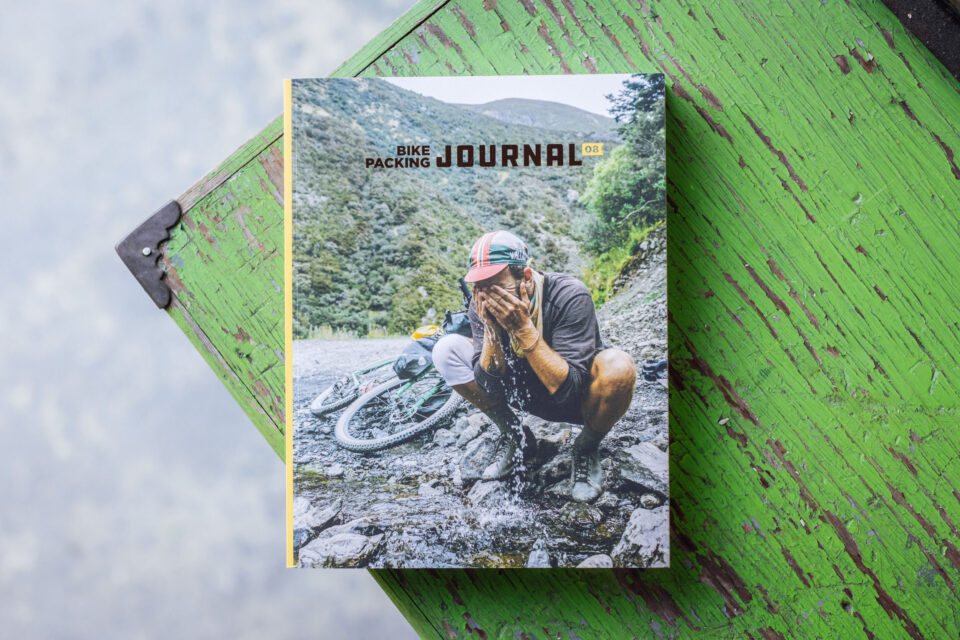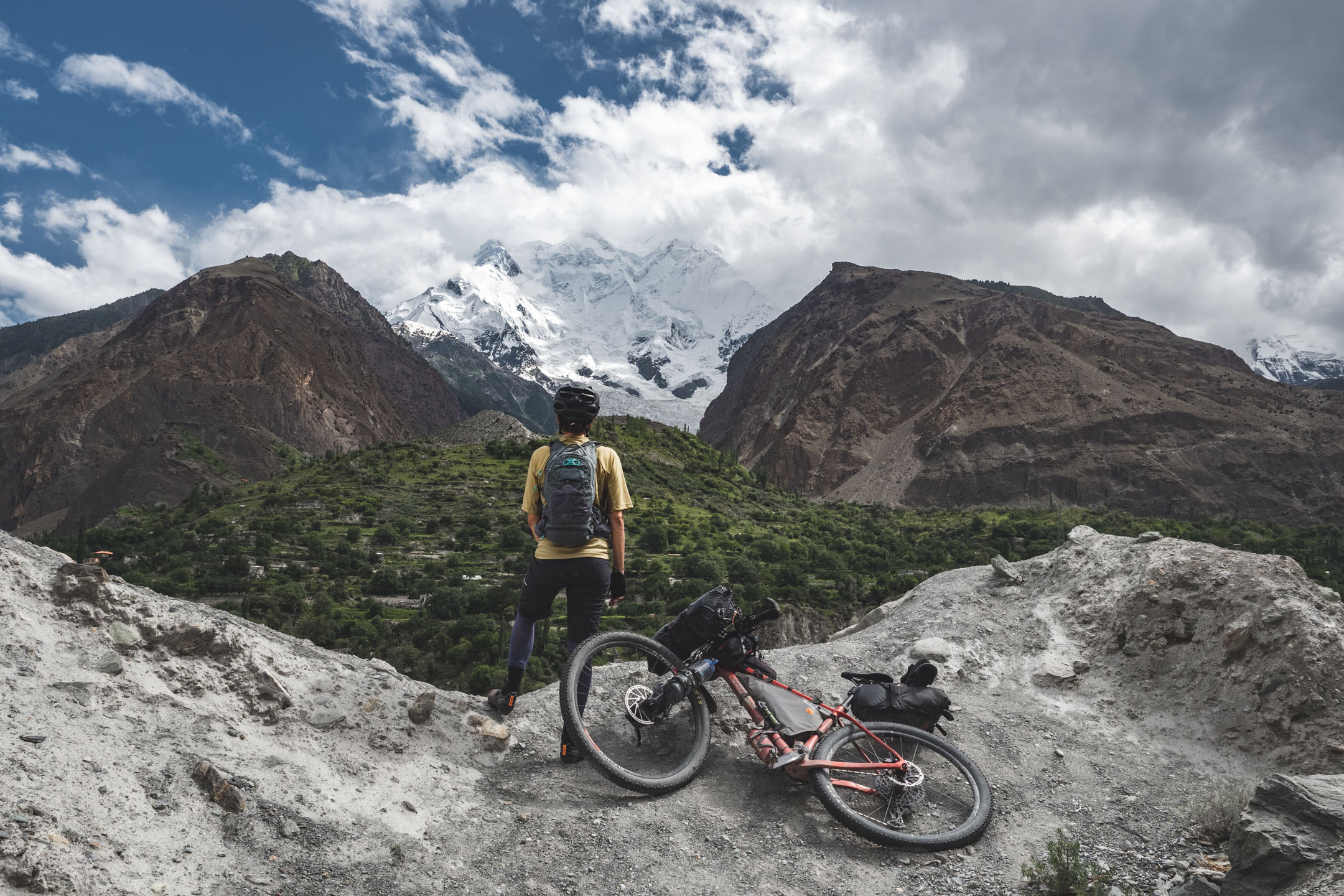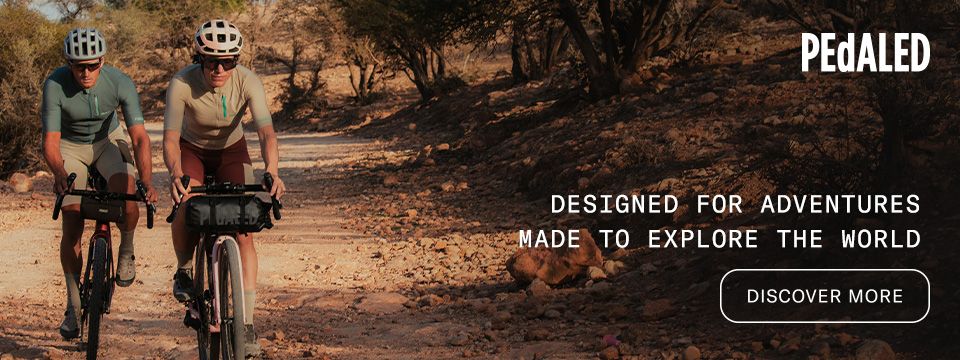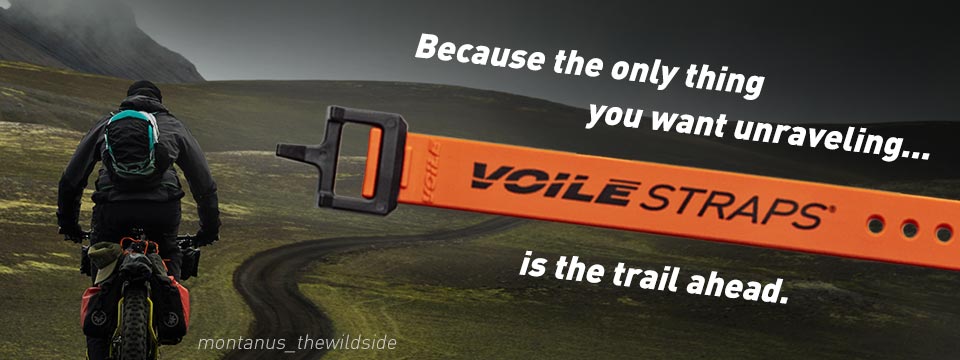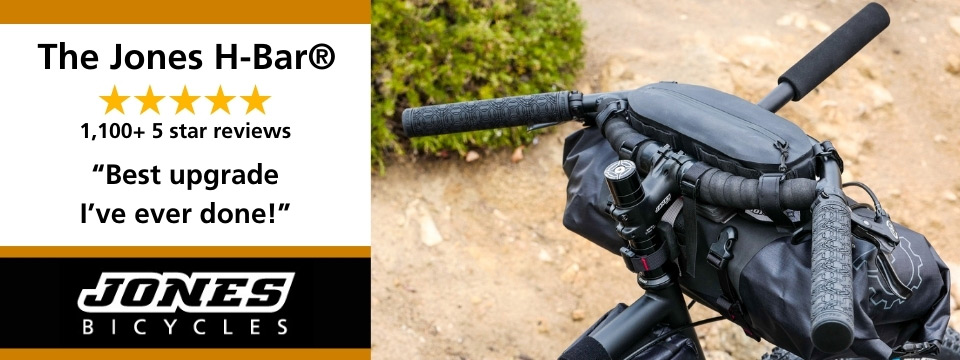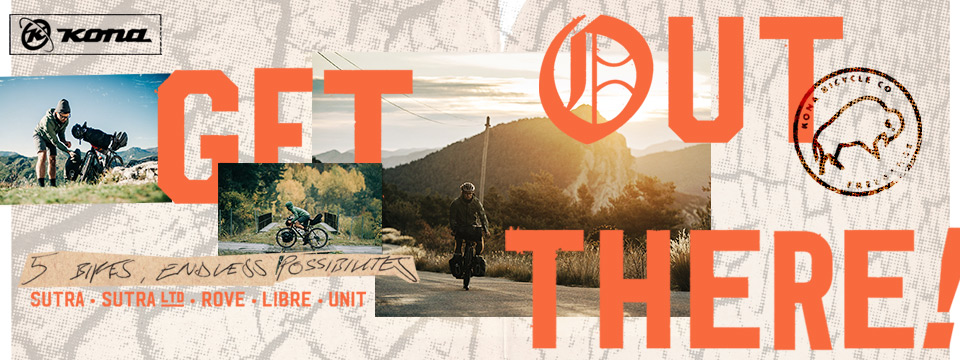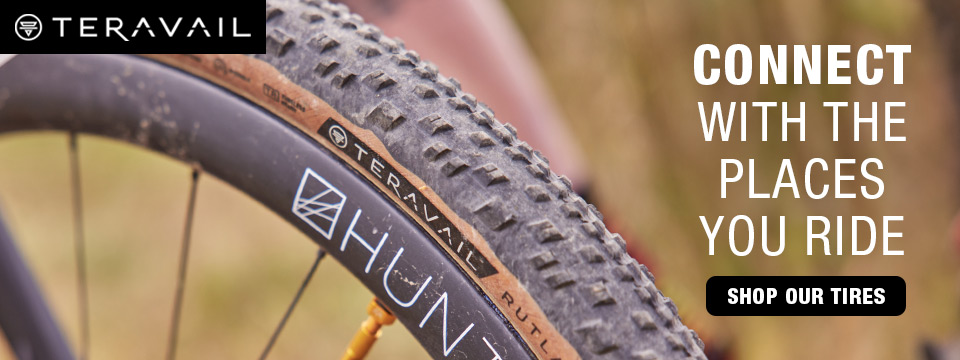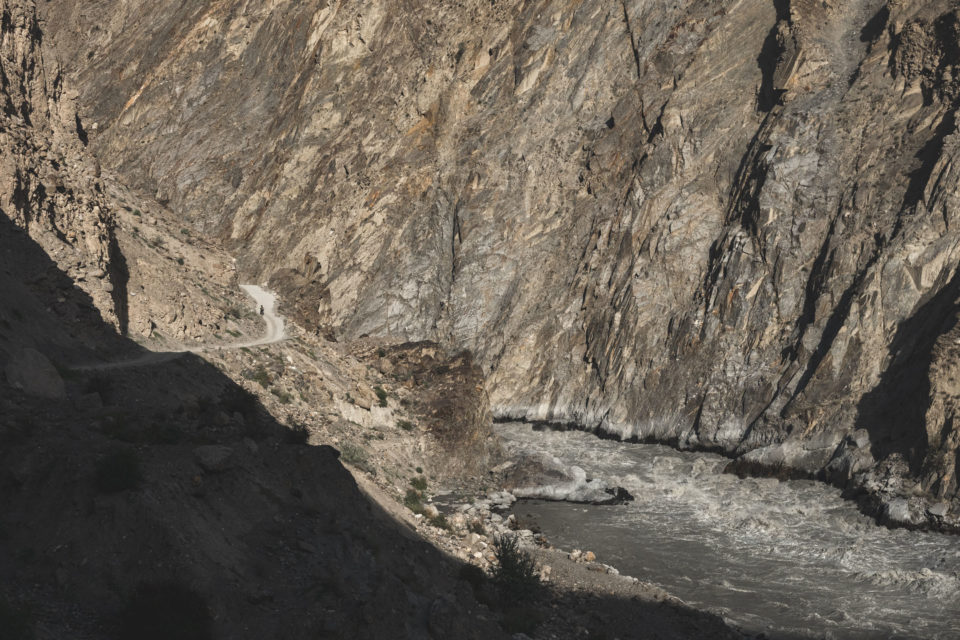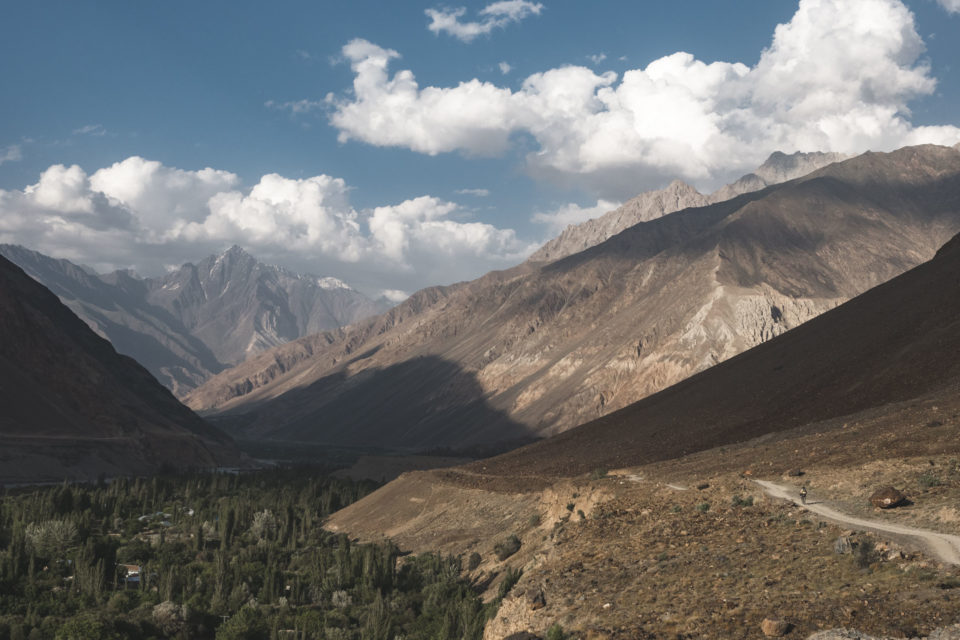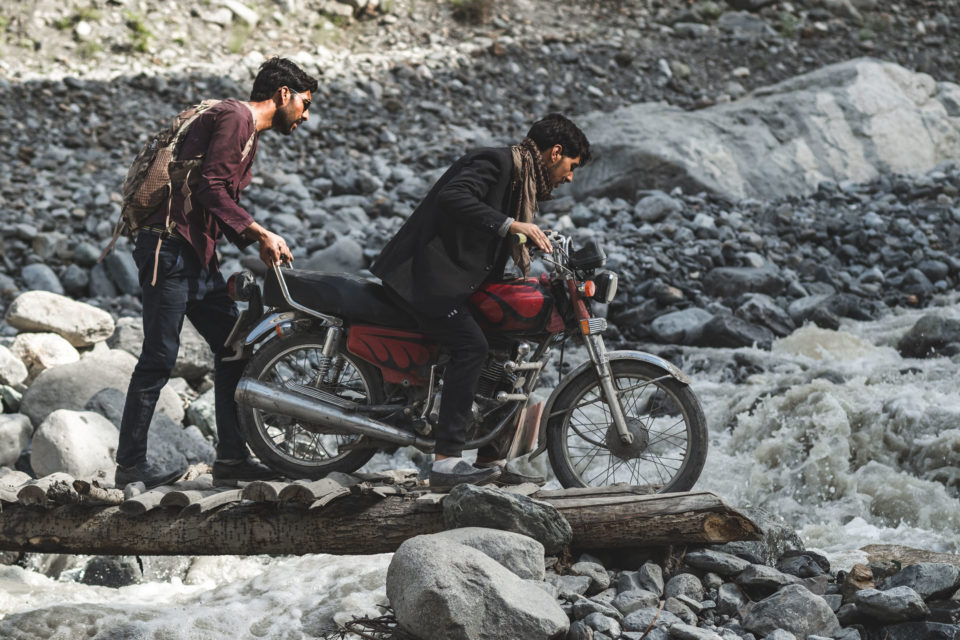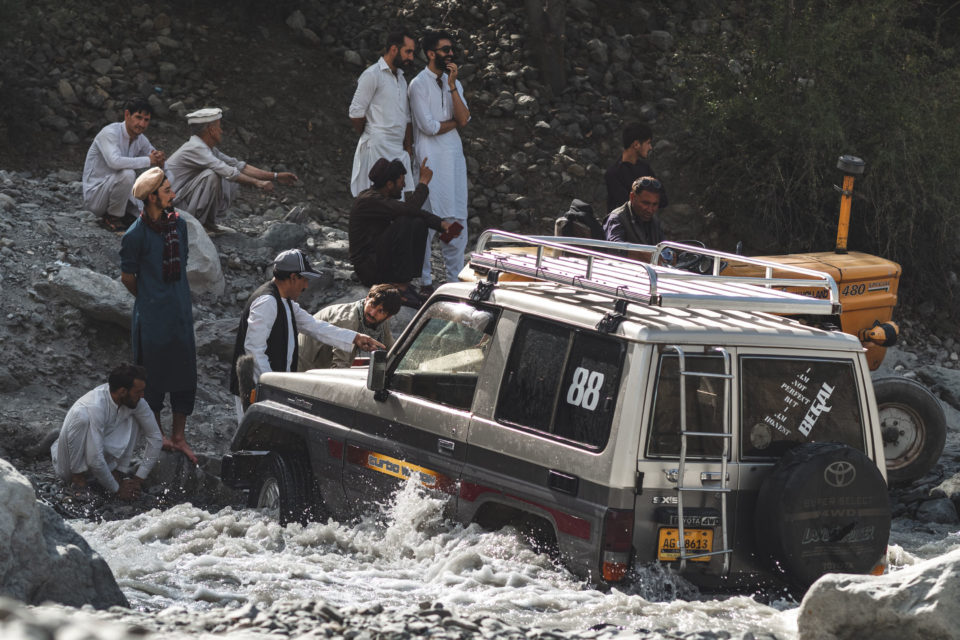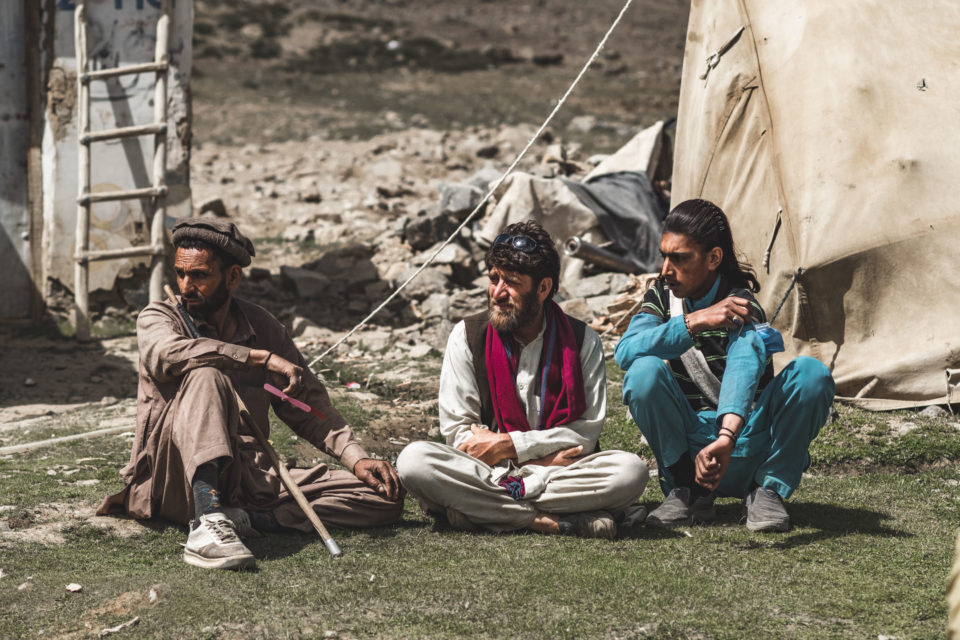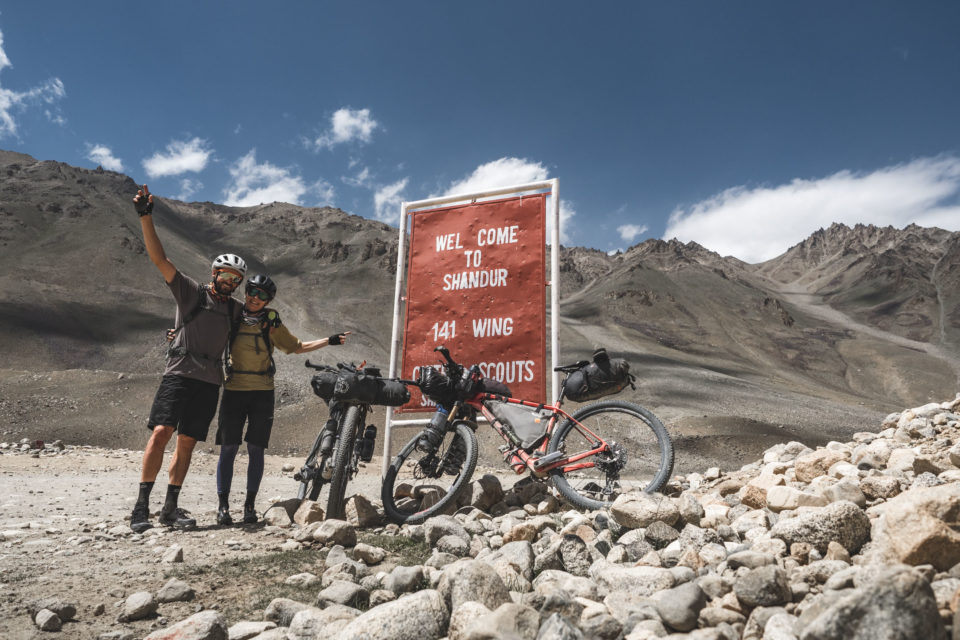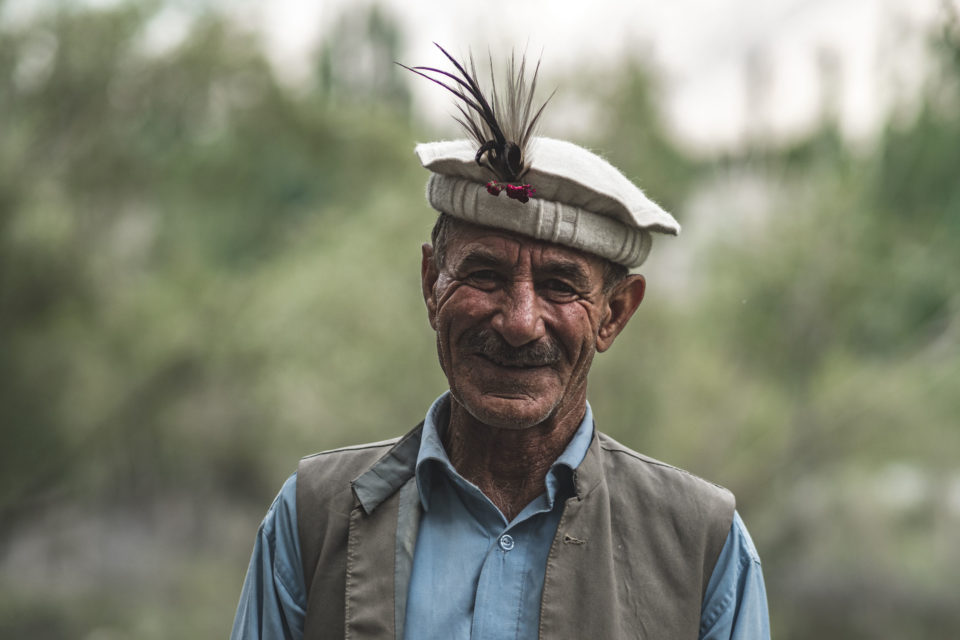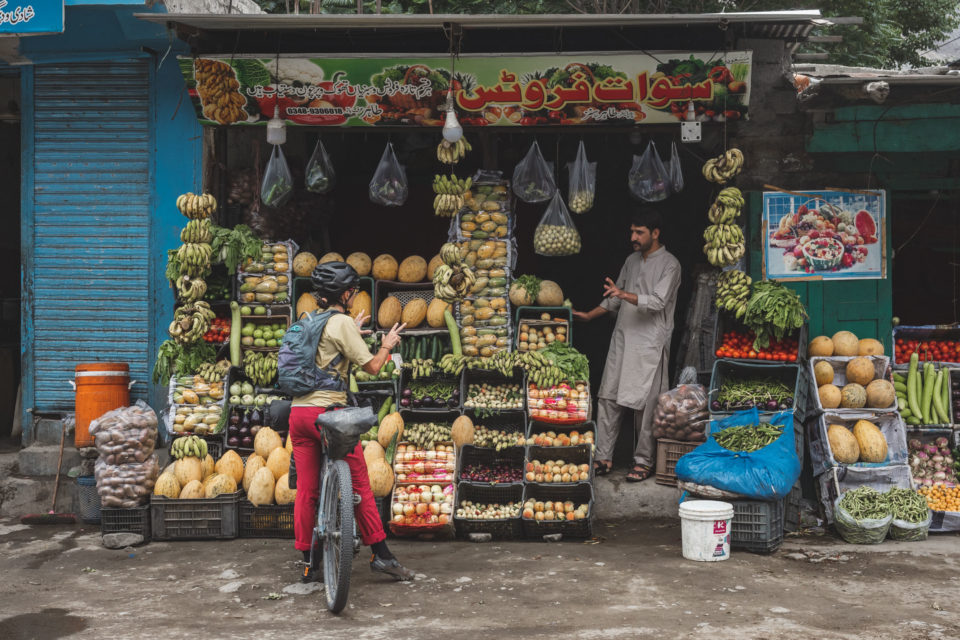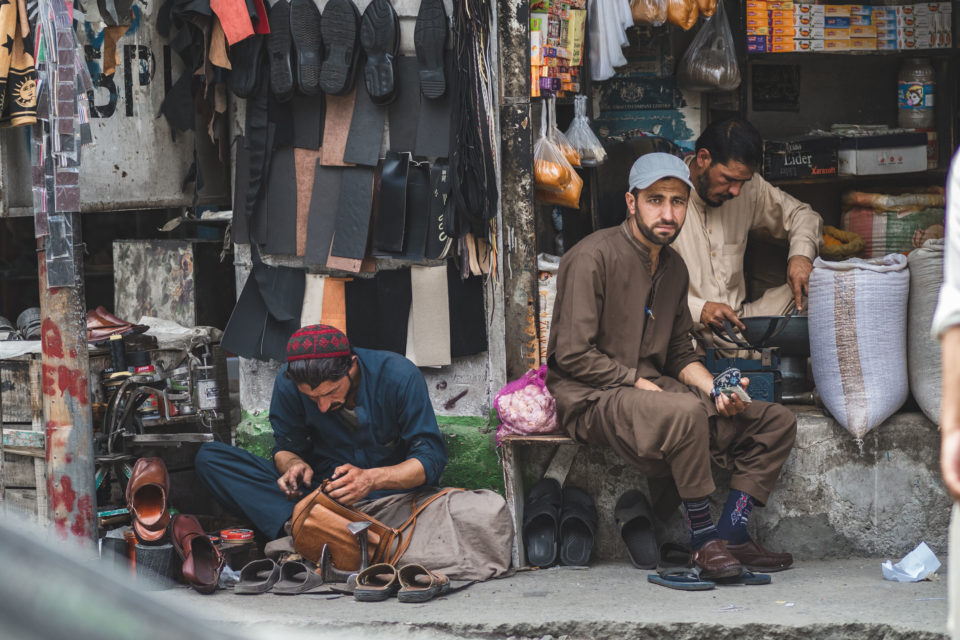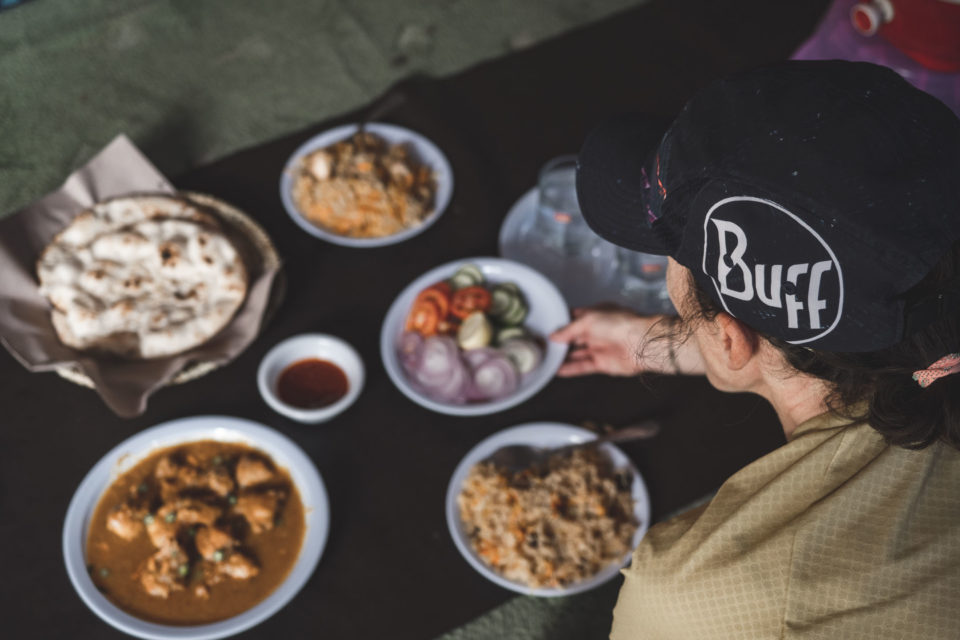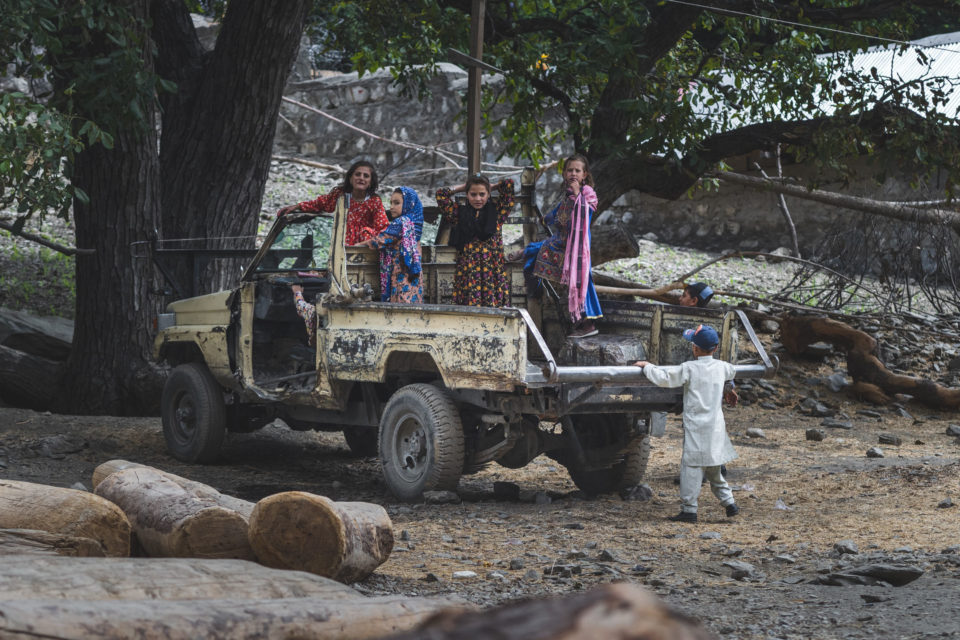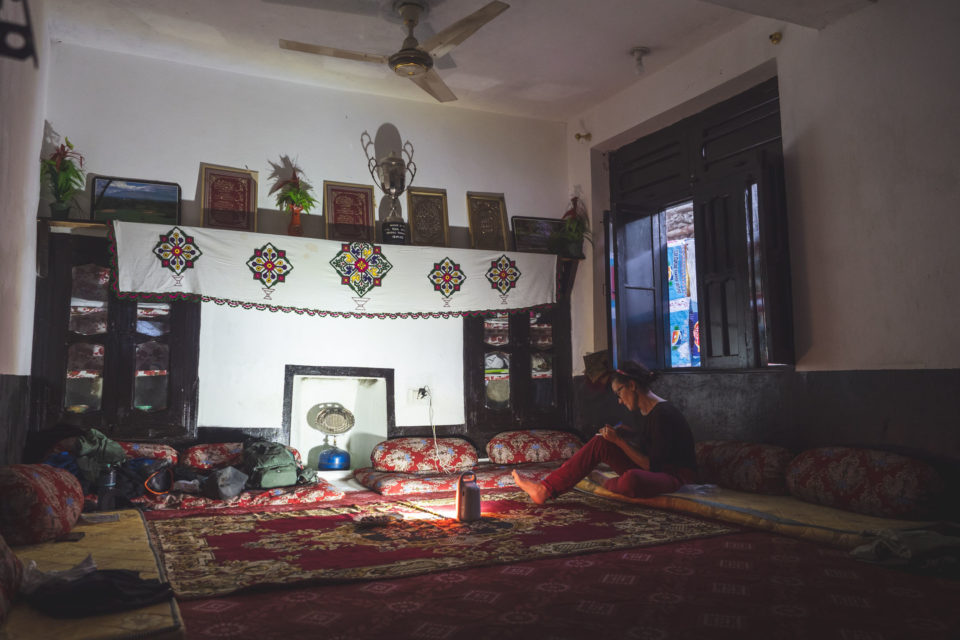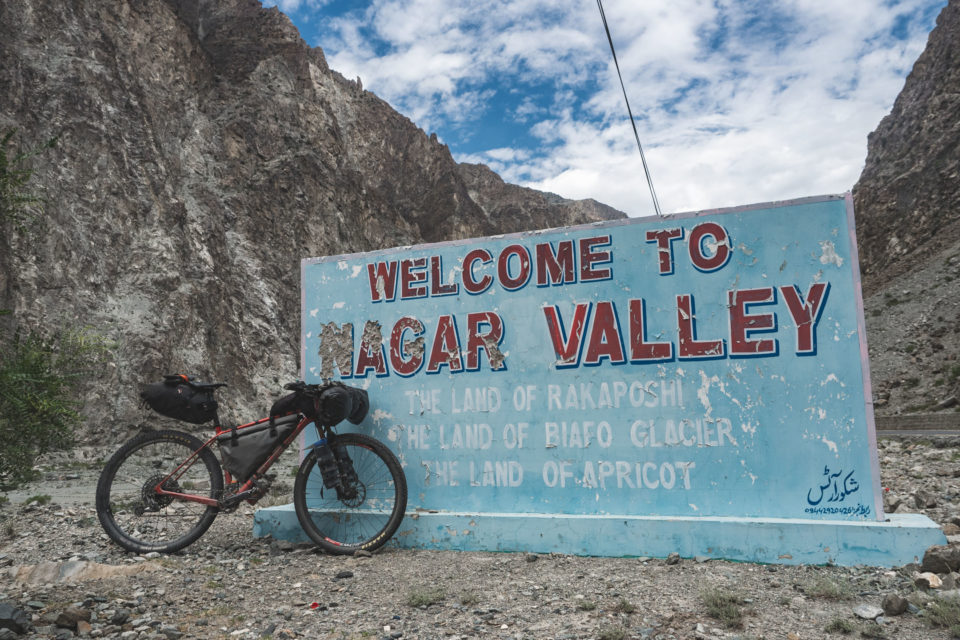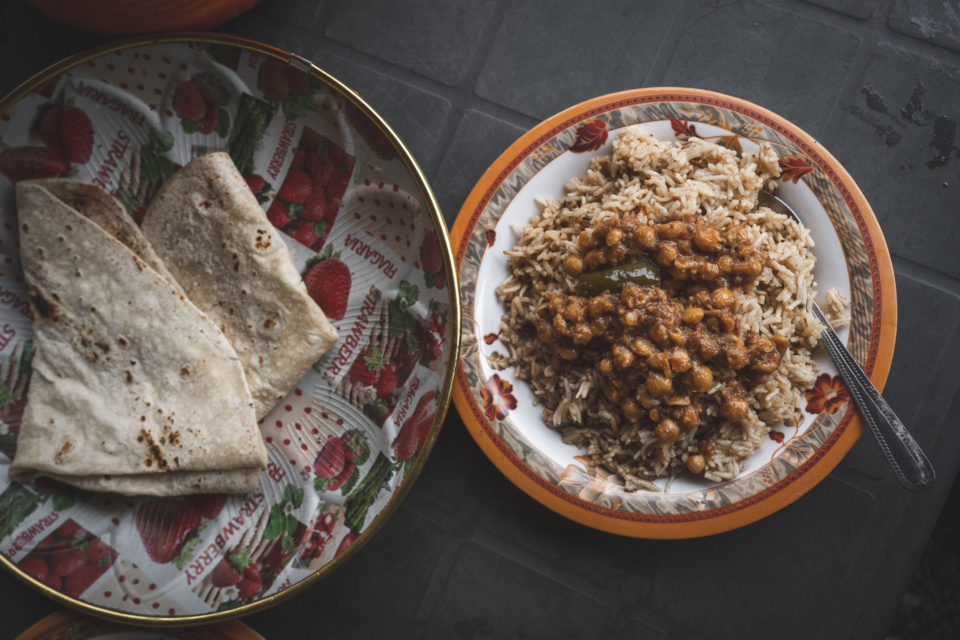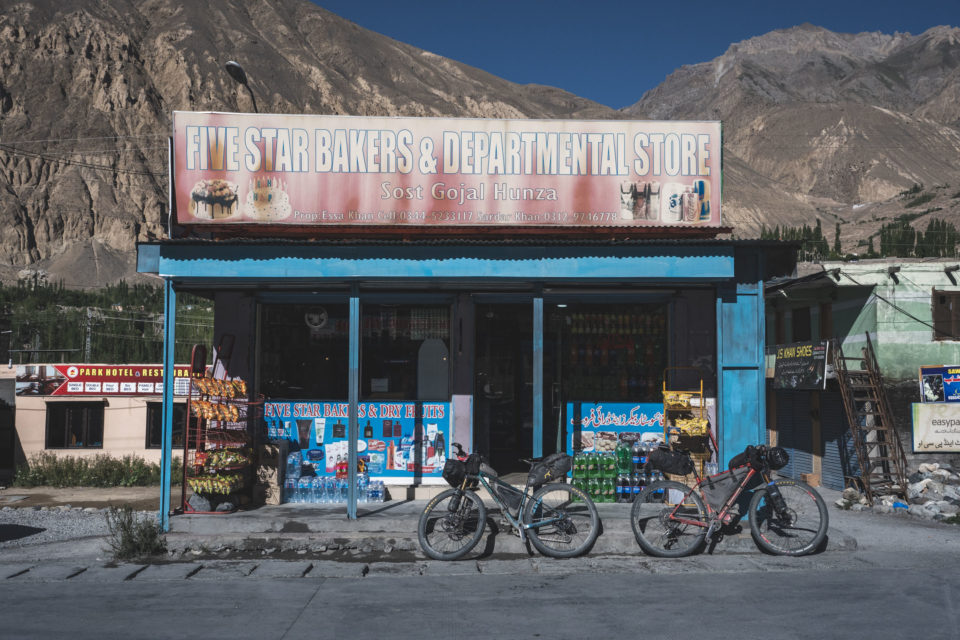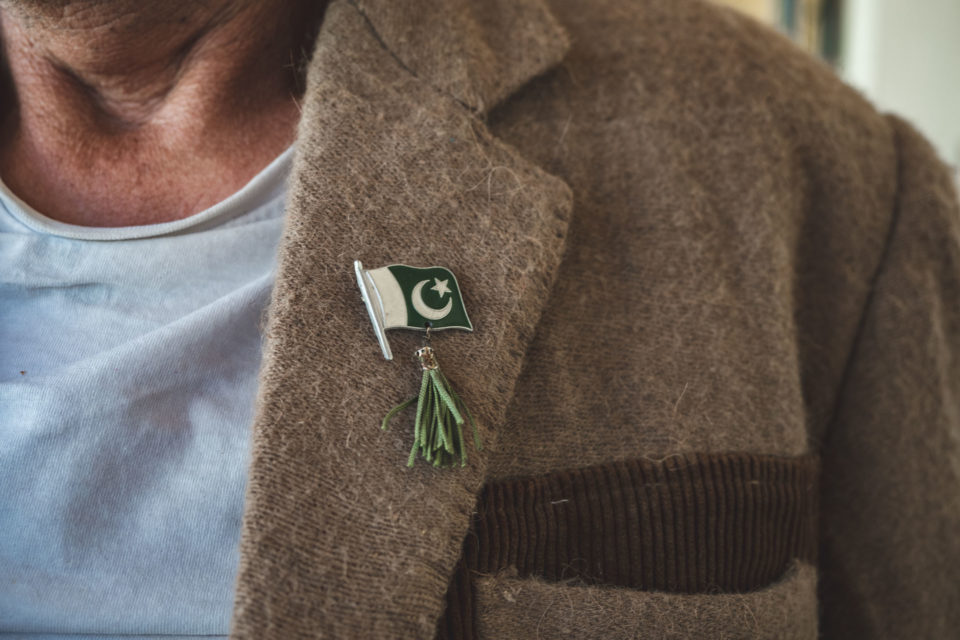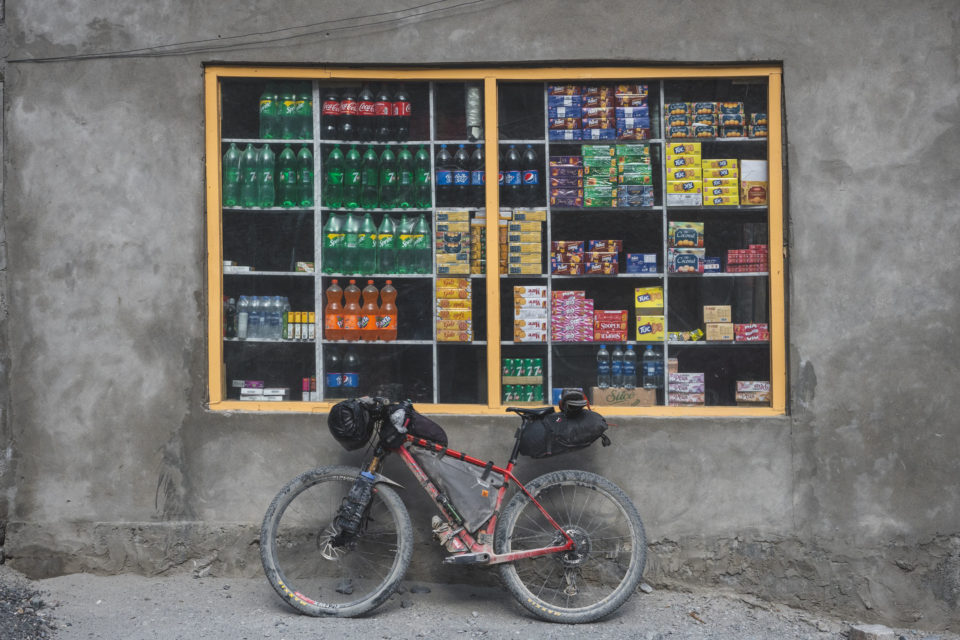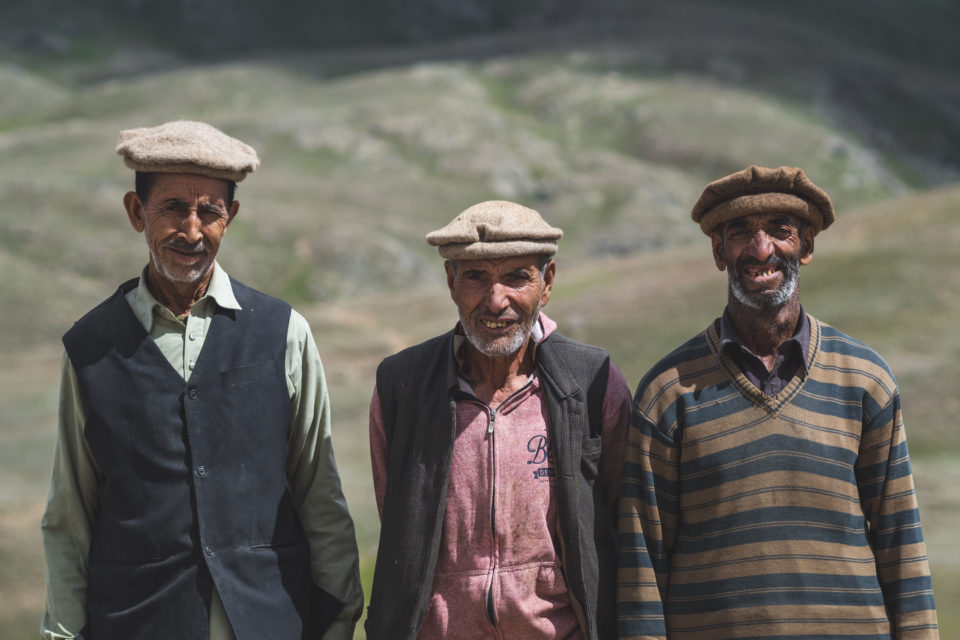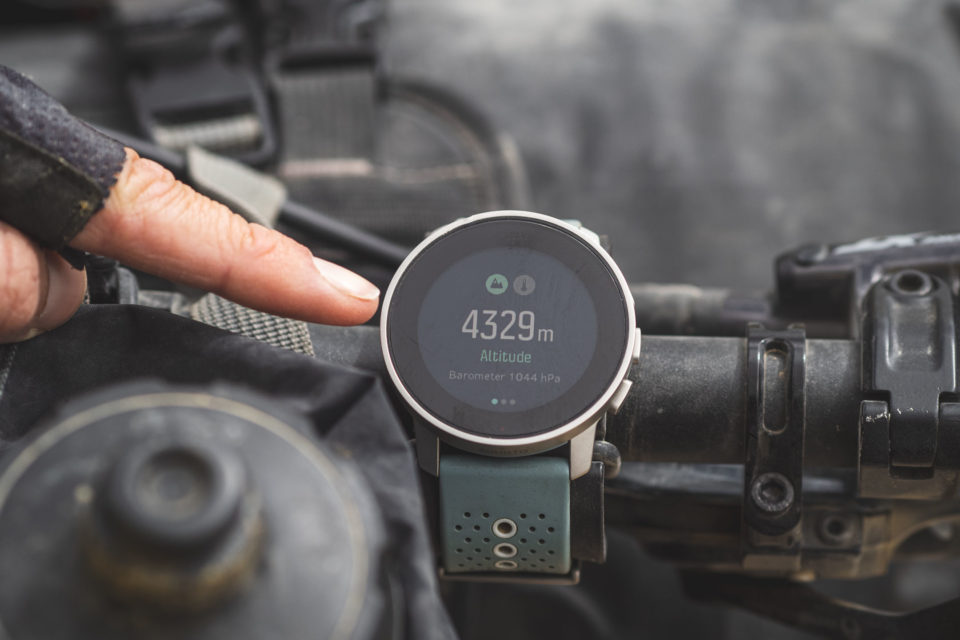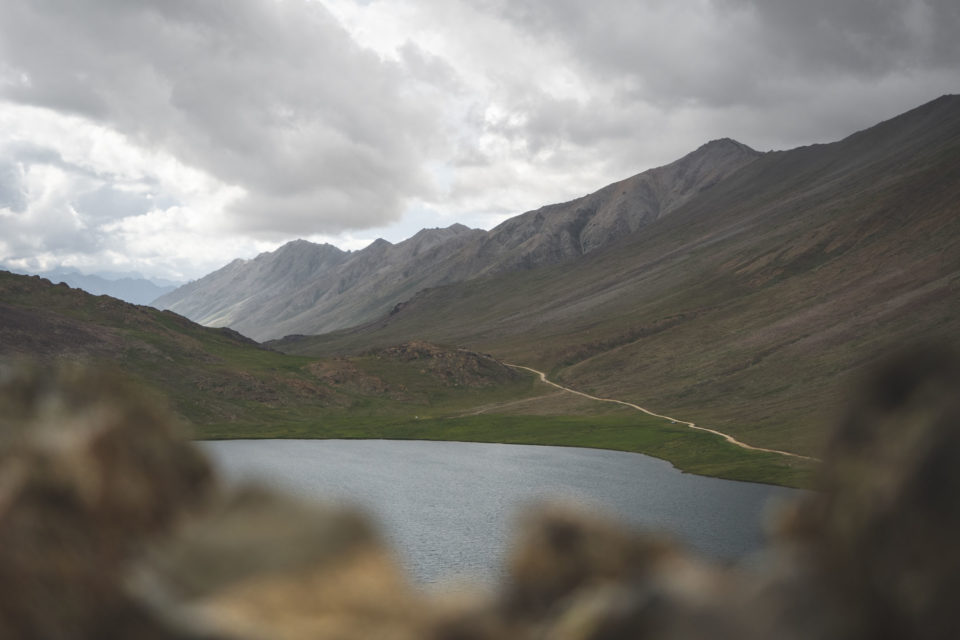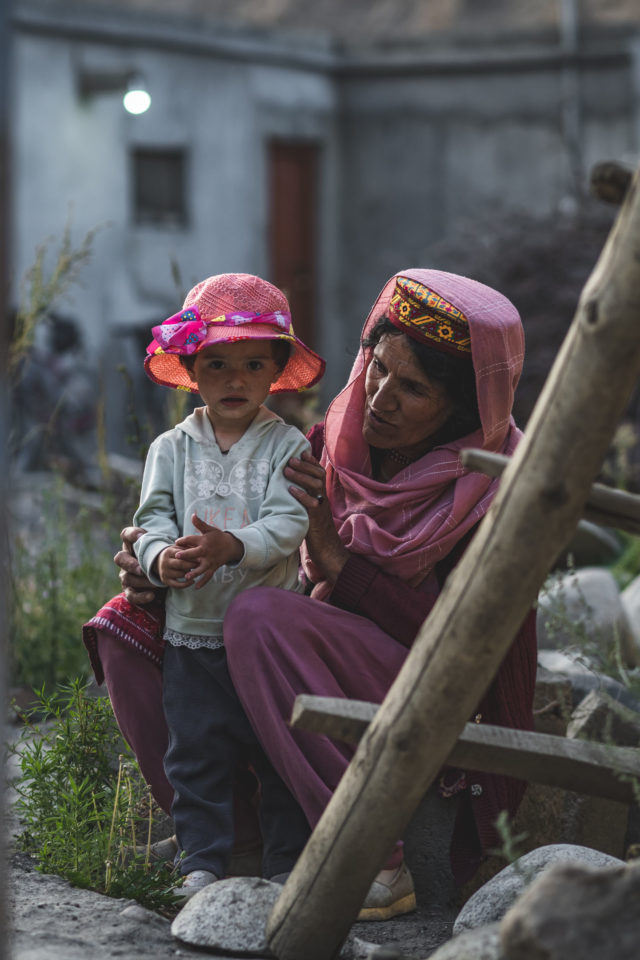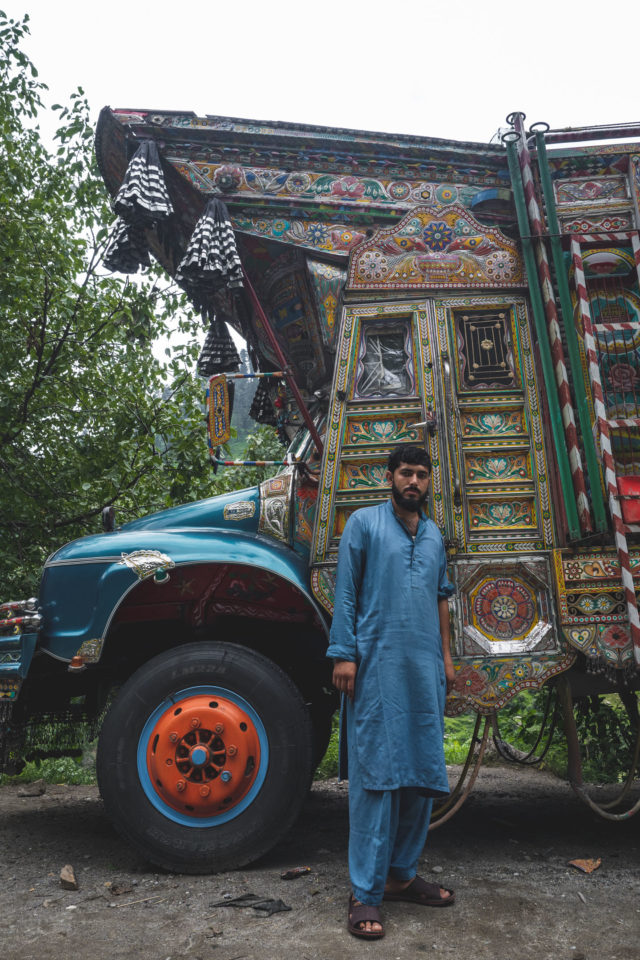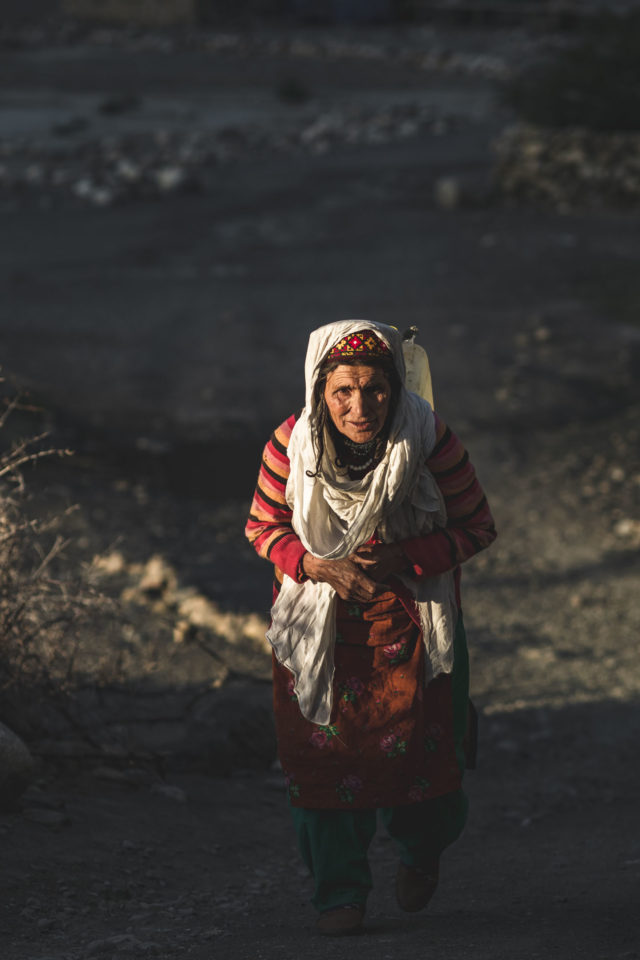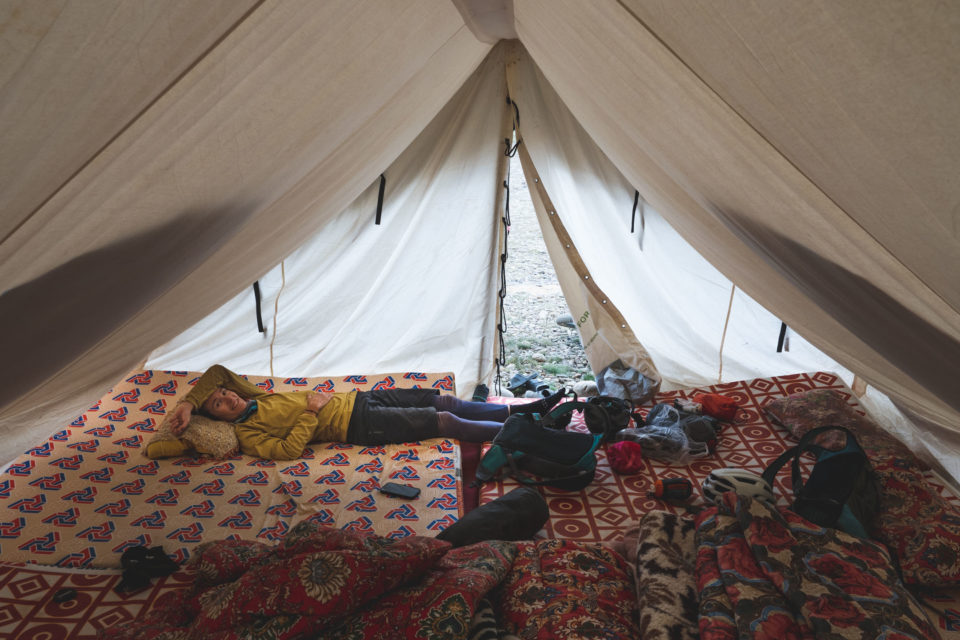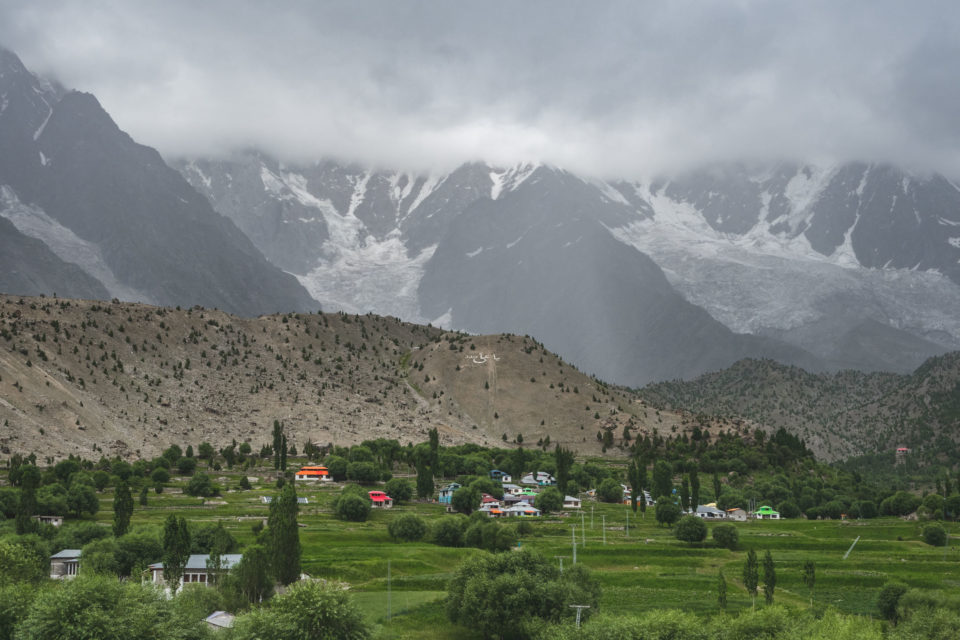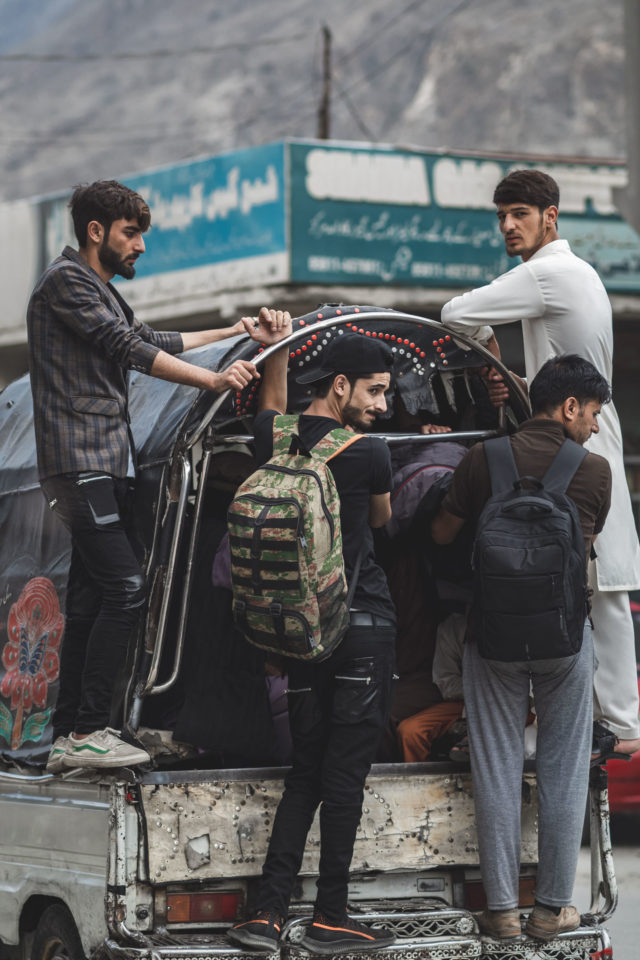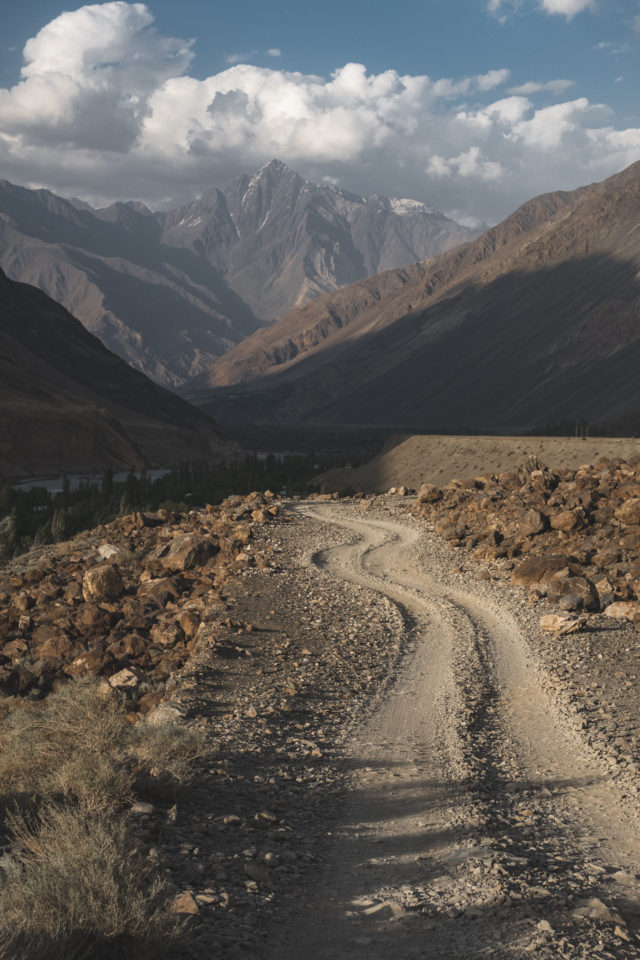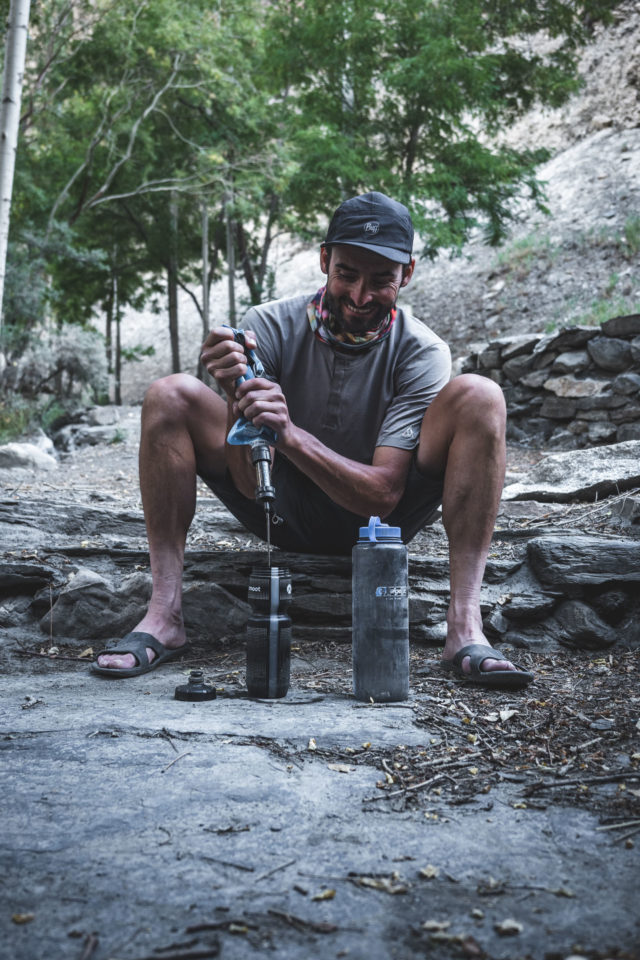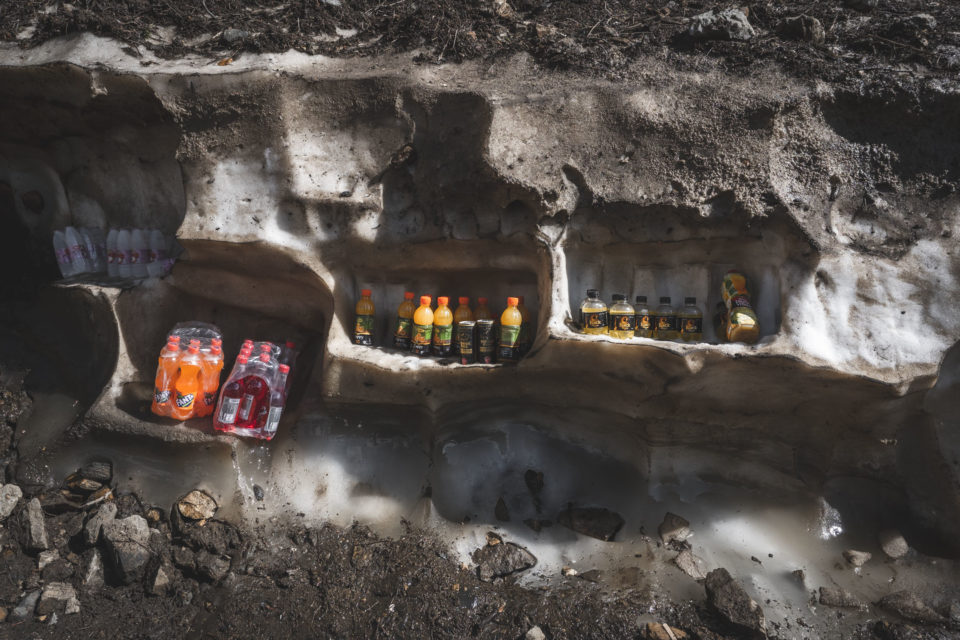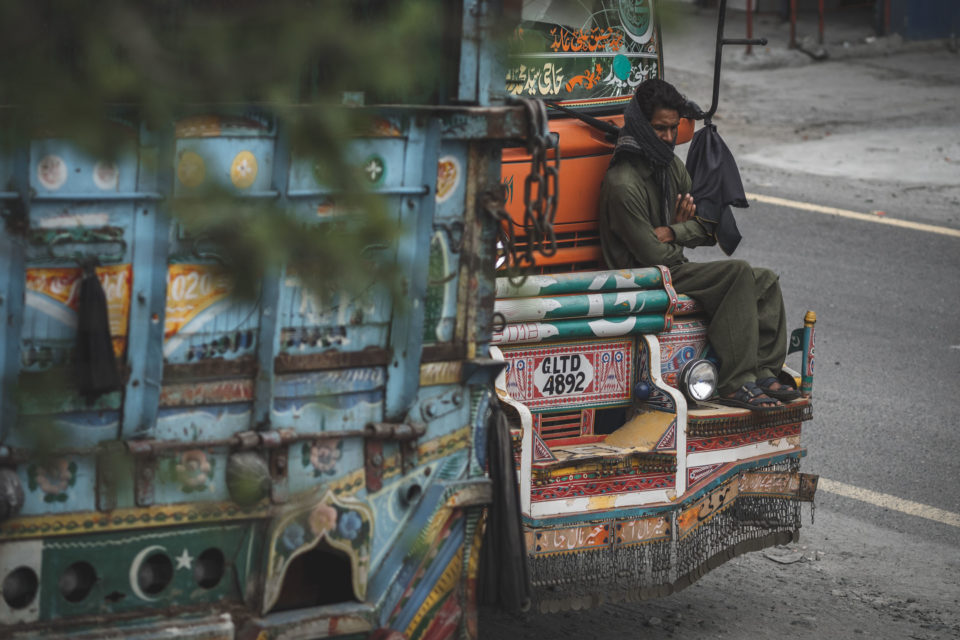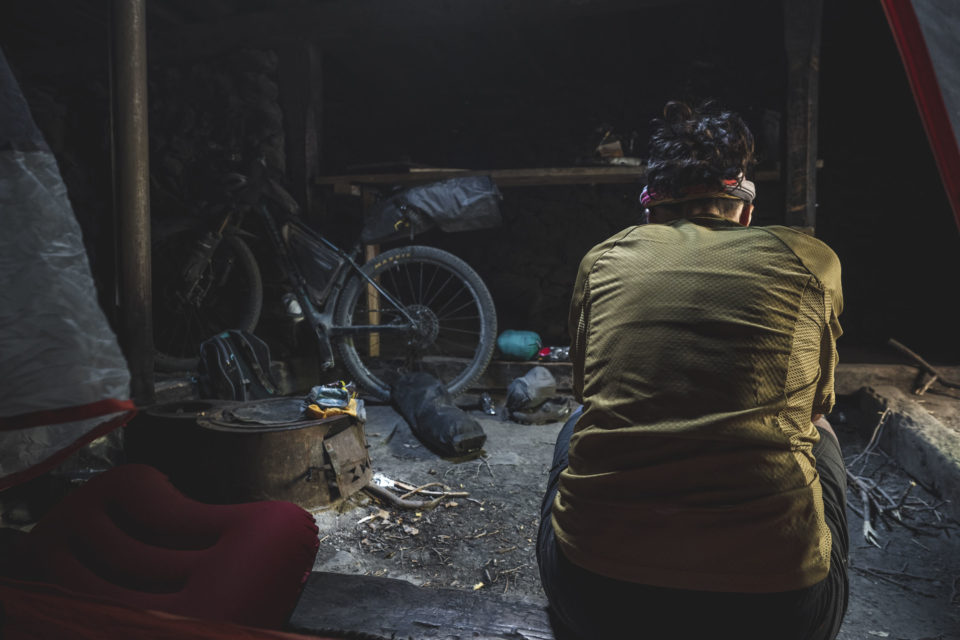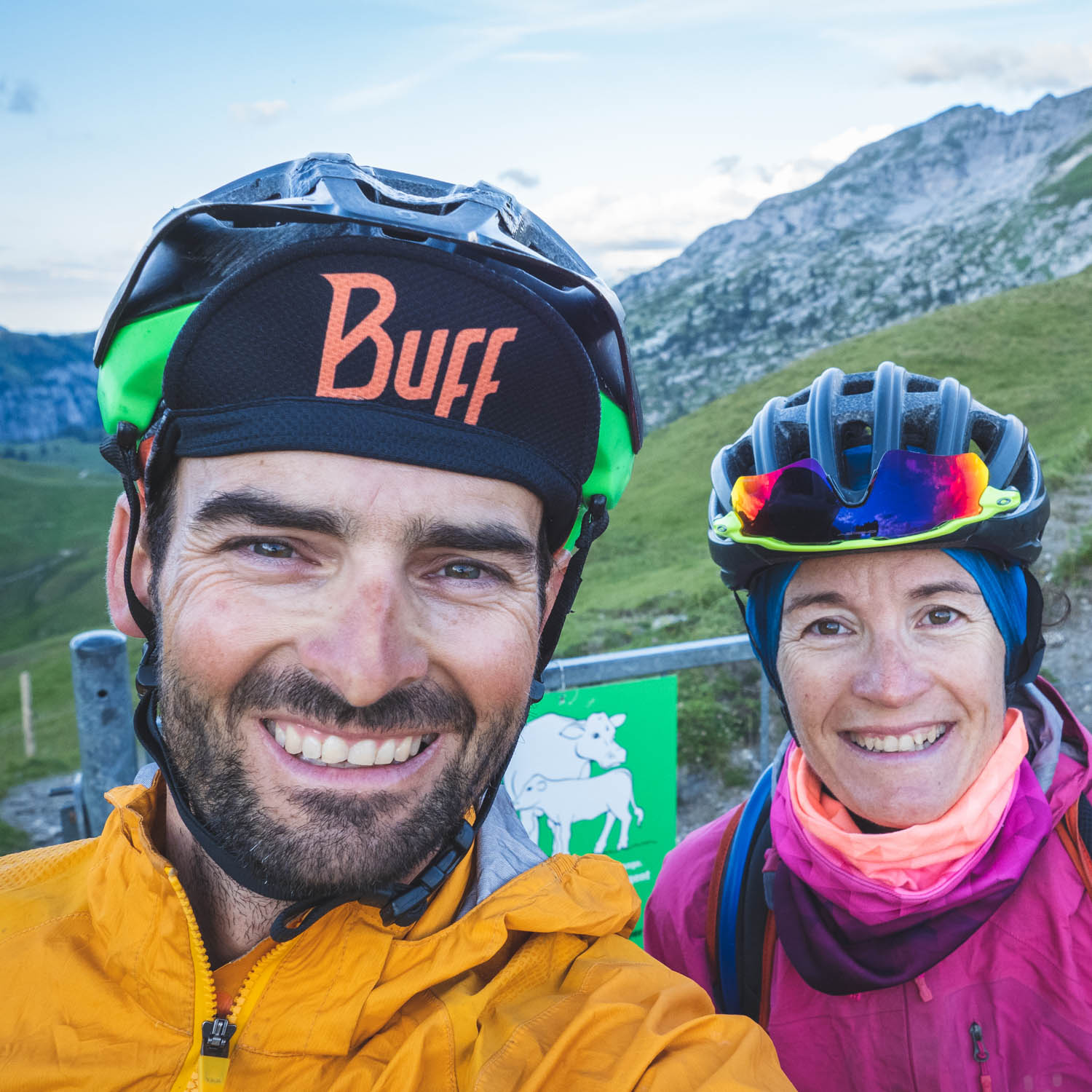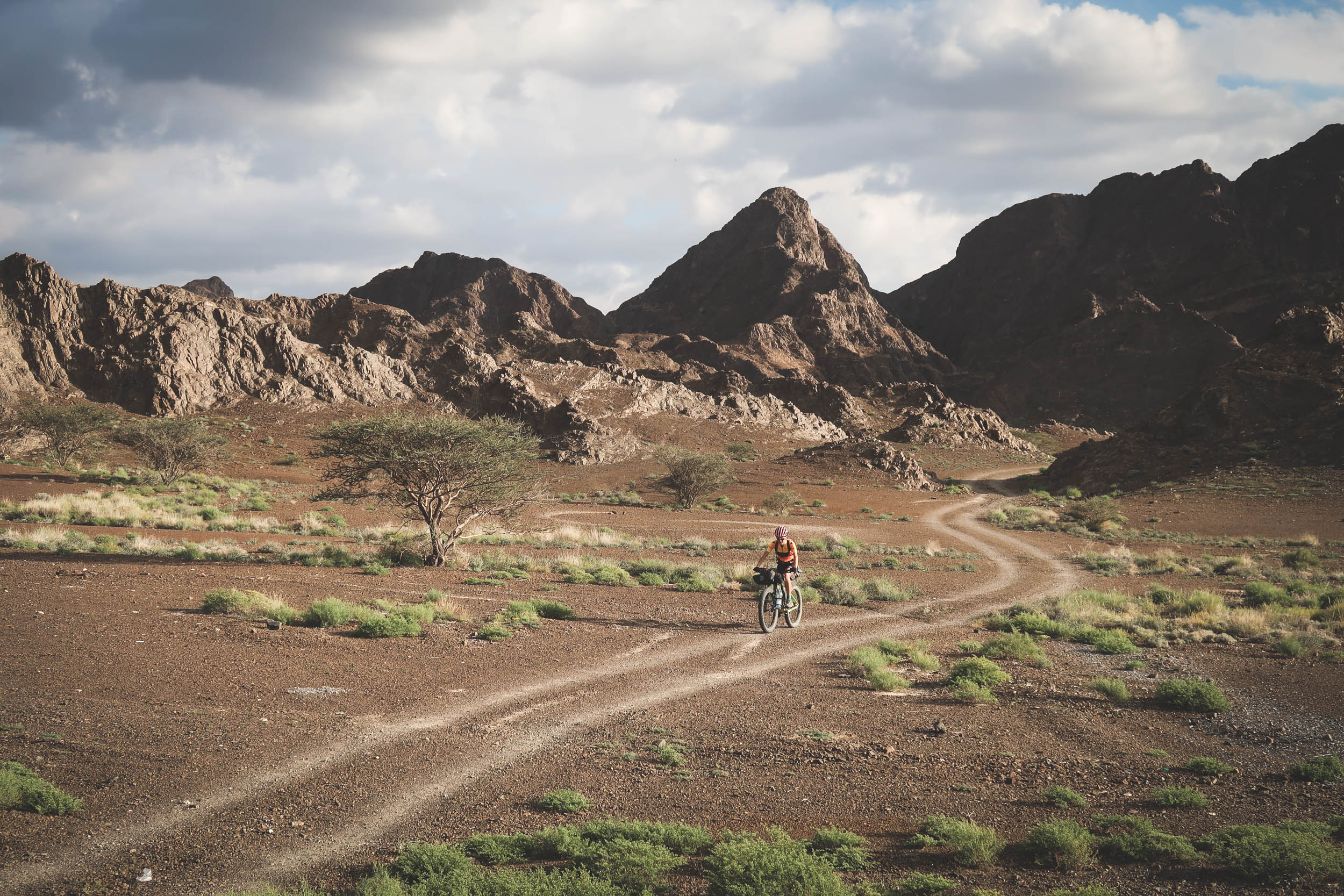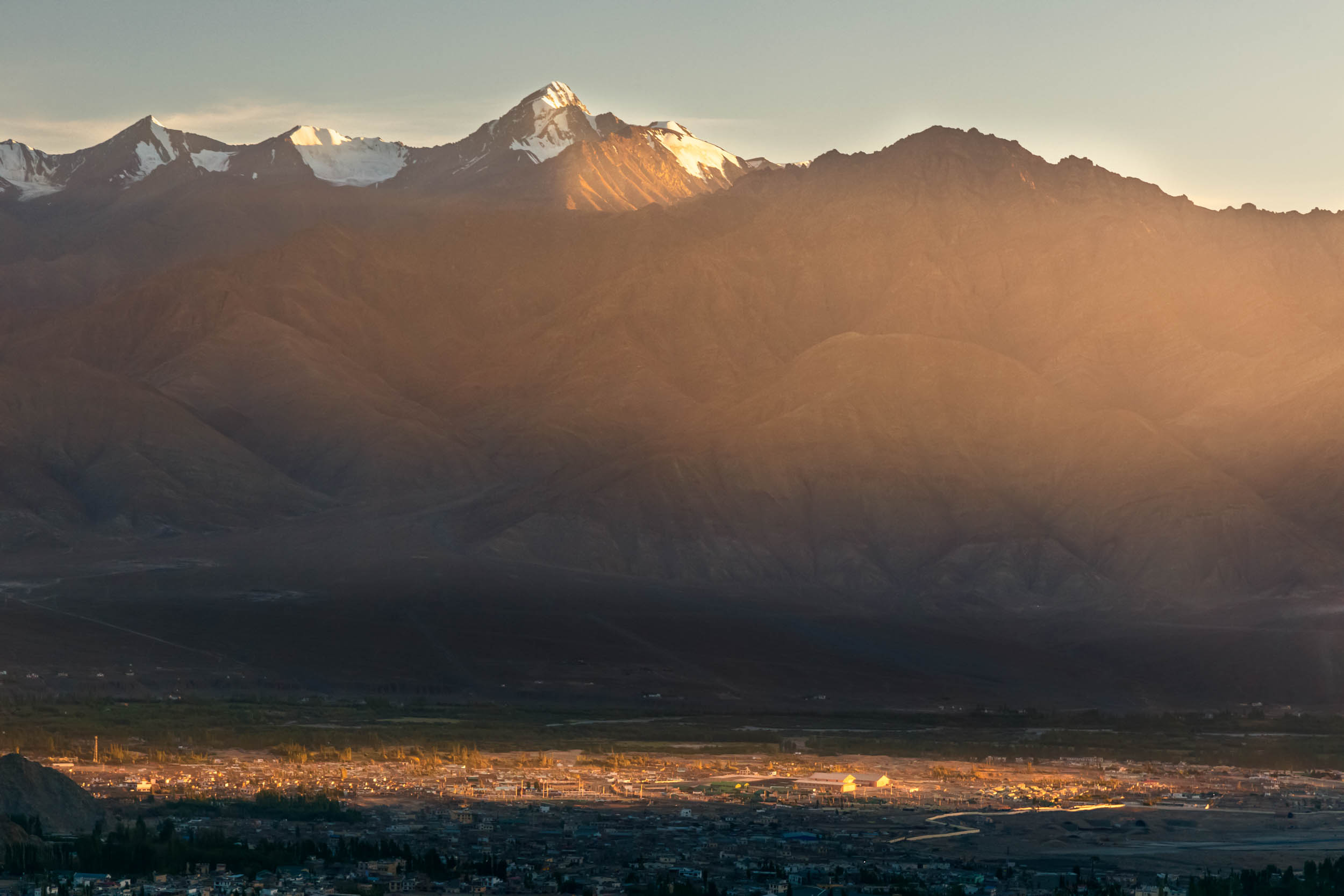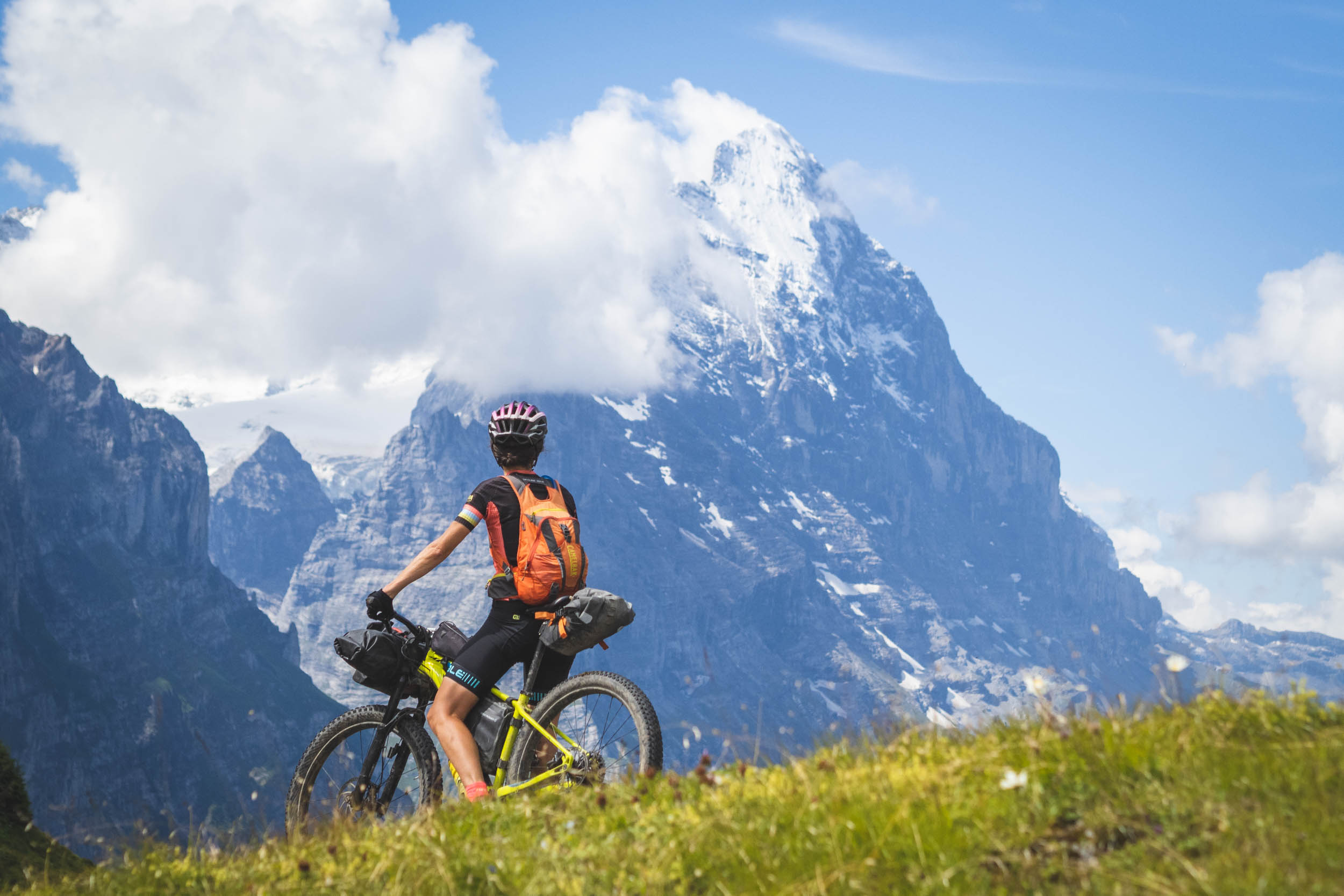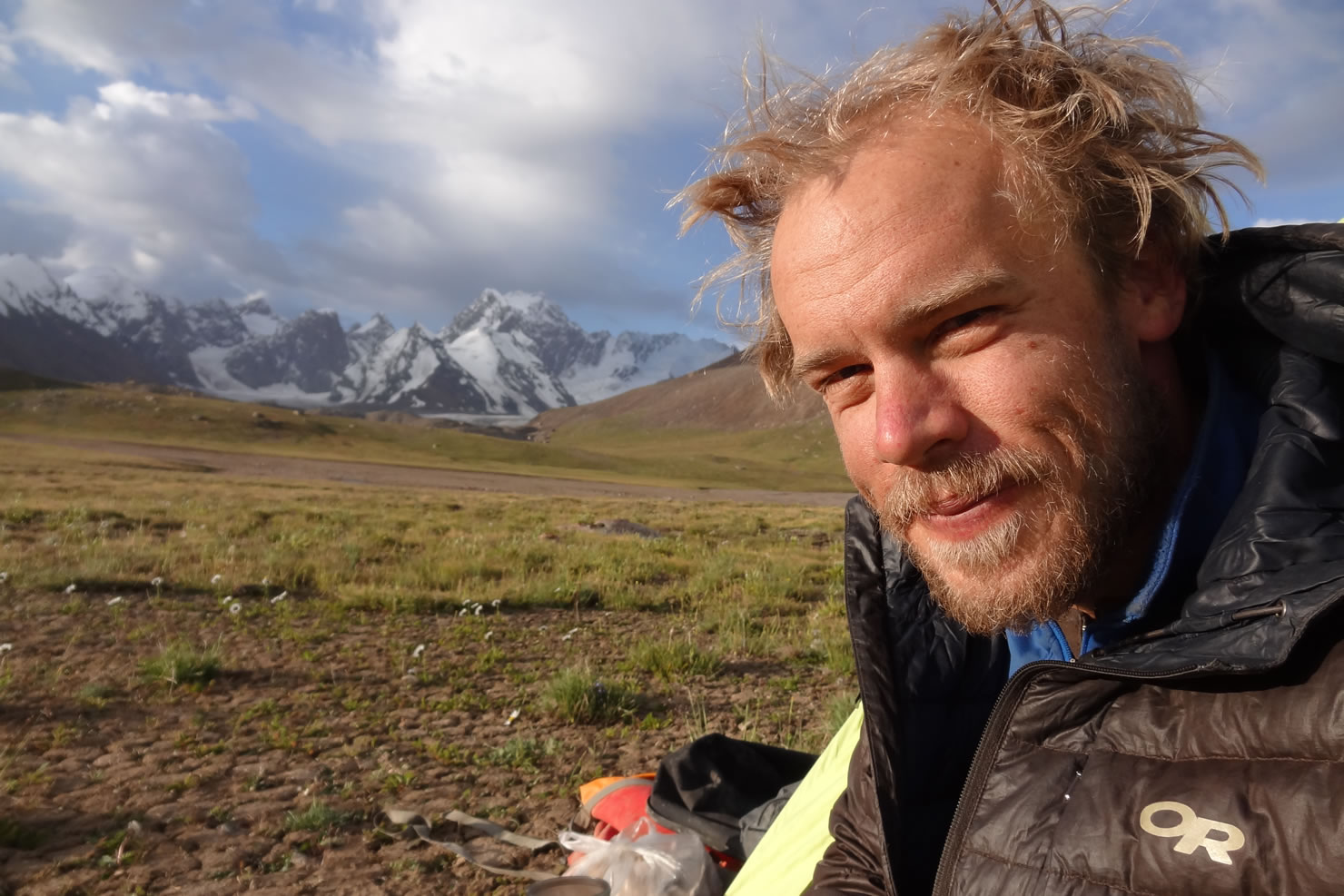JHOOM: Go with the Flow (Video)
Share This
Over the summer, Alba Xandri and Ricard Calmet pedaled 1,400 kilometers across Pakistan, weaving their way through a network of beautifully remote valleys and up breathtaking passes. To recap their experiences, they put together a 15-minute film, written report, and stunning set of images. Find it all here…
Words by Alba Xandri (@alba_xandri), video and photos by Ricard Calmet (@erreka)
Suddenly, we hear a rock sliding down from up high, but we can’t be sure where. The mountain echoes confuse us. Our gazes are focused on the heights above. We try to locate the rock, and we finally see it tumbling down the slope, taking more rocks and sand with it. It’s picking up speed. We decide to stay in place, as we predict it will fall beyond where we are. It passes a few meters in front of us and then continues down toward the river. We hurry to pass with our bikes before another landslide traps us.
A few kilometers later, we encounter a digging machine and a few workers dressed in the typical shalwar kameez. They immediately shout something at us in Urdu, which we don’t understand. But we work out that we must stop because there is imminent danger. While figuring out what is happening, we hear a deafening noise, like a loud firecracker. One of the workers looks at me and says the word “blasting” in English. They are using dynamite just a few meters from where we are.
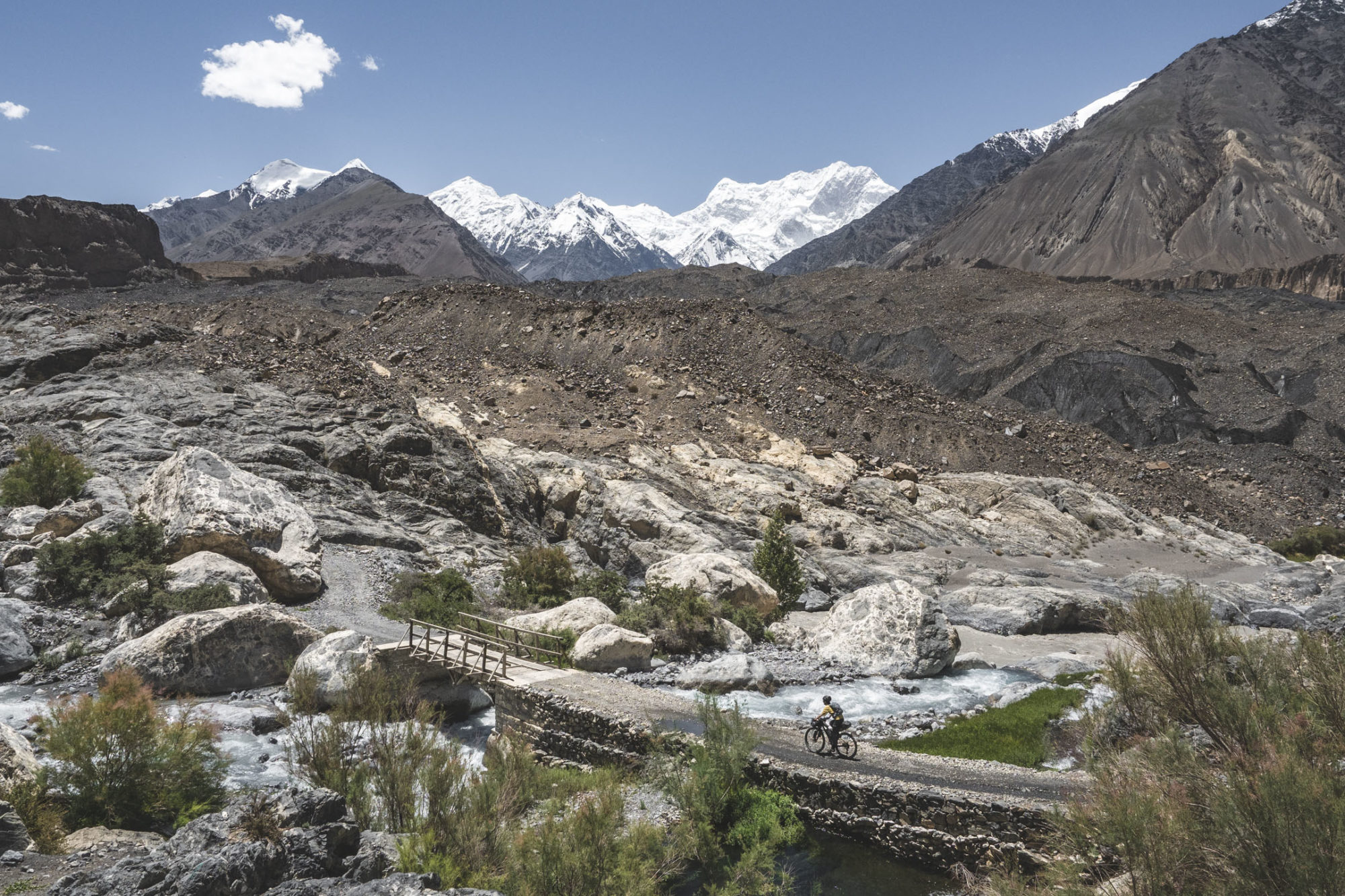
A rock flies over our heads, then another, and then another. We leave our bikes in the middle of the road and run, as they do, behind the digging machine to look for protection. Their faces are full of smiles because they see us scared and out of control. We are not used to this type of insecurity. The road is now completely cut off, but they let us pass by jumping over the rocks. There’s no danger, they say. We pedal with the adrenaline pumping, crossing a river with huge rocks that block the way for any vehicles except us.
Oh, Pakistan! A country we’d been dreaming of visiting by bike for such a long time. Jhoom! Flow, dance, and, if necessary, go into a spiritual trance. This is the indispensable slogan to be able to experience this country and our chosen route to the fullest. We knew from the start that our plans might need to change. Everything here is unpredictable and unimaginable. You have to flow, pedal, observe, and enjoy. For us, the most complicated thing was deciding to travel here. The rest will be easy, we think.
From our starting point at Ayun, in the Chitral Valley, we go into a valley that’s home to the Kalash ethnic group, the Rumbur Valley. According to the advice of some European embassies, traveling around this part of the country isn’t advisable, as the Pakistani army fought some Taliban here some time ago. We investigate a little deeper and see that national tourism is allowed in the area. So, we decide that travel is currently feasible.
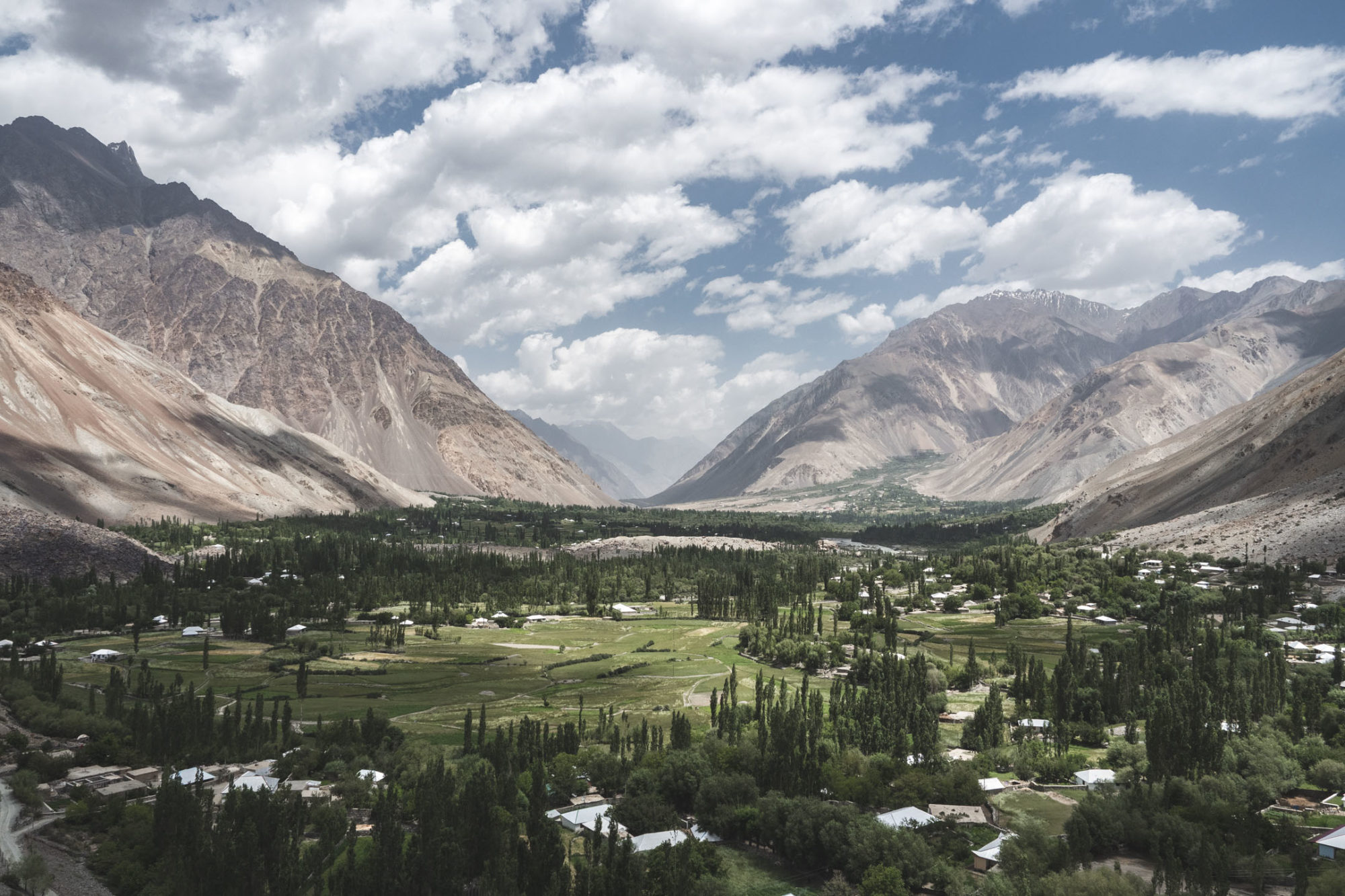
Once we arrive in Rumbur, our attention is drawn to the colorful clothing of the women and the crocheted braids hanging from their hats and black dresses. It looks almost like they’re celebrating, but that’s how they dress in their day-to-day life. As often happens along this journey, children stop in their tracks to look at us in surprise. We greet them and continue pedaling.
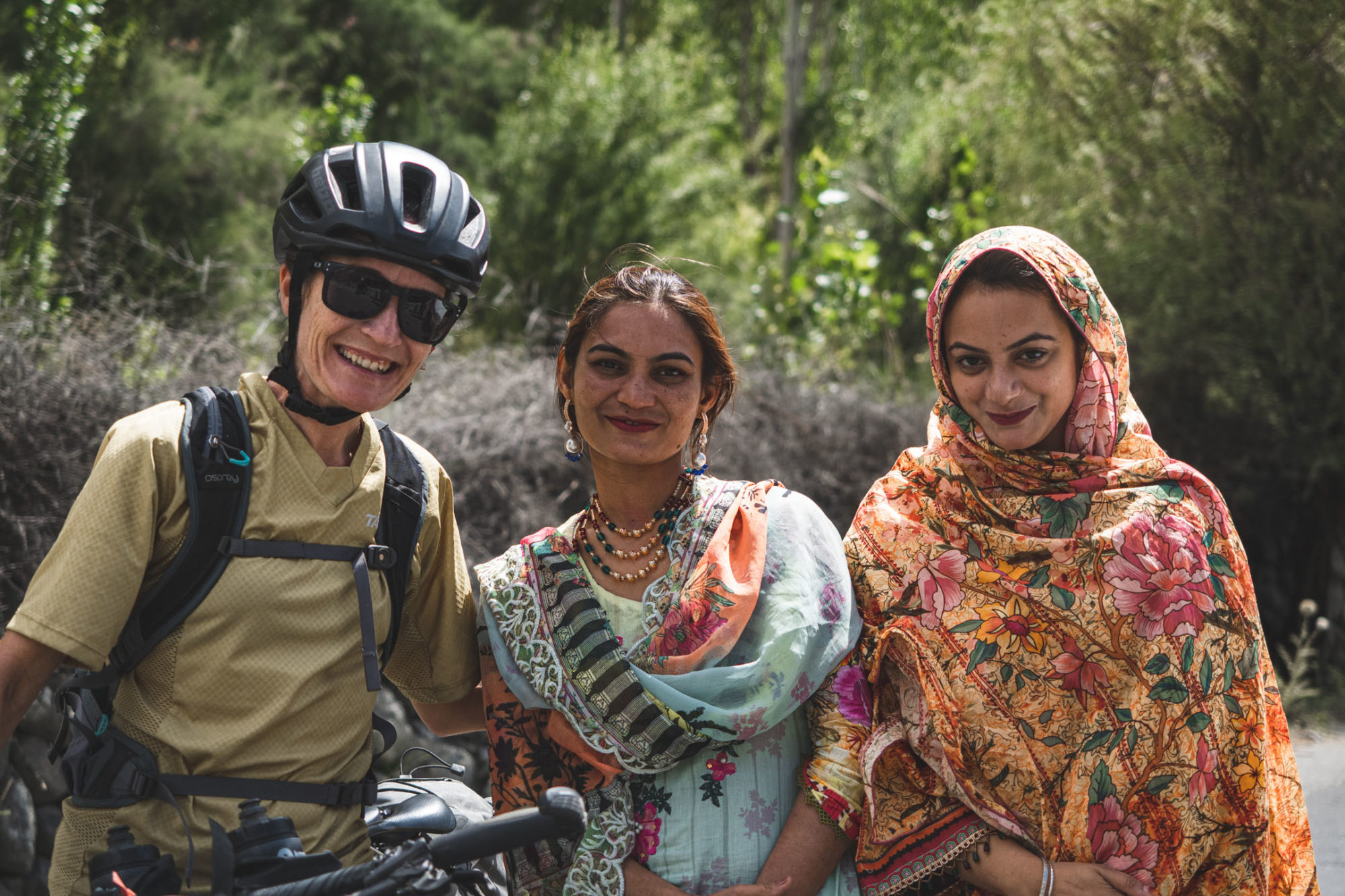
We begin to feel that it will be a hot trip. From early on, the mercury rises high. Our most immediate focus is on the Shandur Pass, at 3,738 meters high, where a polo match is played every year in early July on the highest field in the world. On our way, we have to face the first changes of plans as landslides cut off the road at two points. But, in Pakistan, there are solutions for everything. We take alternative roads, following the locals’ advice, which adds adventure to our route.
At a certain point, one alternate road completely disappeared due to a flood a few days before. The police checkpoint a few meters ahead gives us permission to go through a steep goat path that climbs uphill after a couple of calls. For us, it’s an adventure, but for the people of those regions, it is a big obstacle since the nearest road is hours away, and they have to transport the goods on their backs.
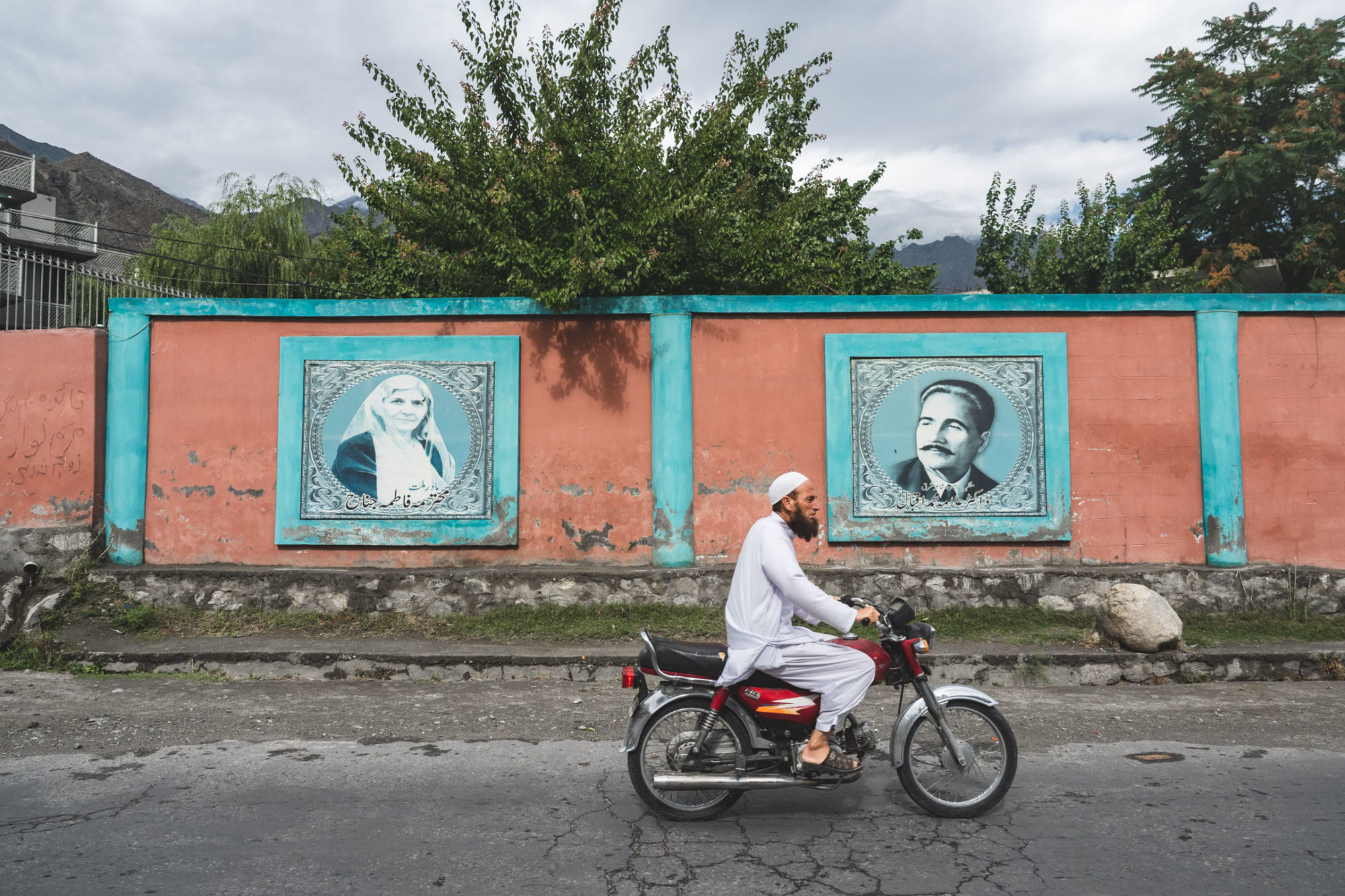
As soon as we reach the walk’s starting point, two uniformed officers are waiting for us. They say they were called to come and help us. We start to push our bicycles, and all of a sudden, they take our bikes from us and say that they are commandos and that they will carry them for us. They go straight up—without the wheels touching the ground once—to where the path ends and the road begins again. We congratulate them for their strength and thank them for their kind help.
Although some countries list the Chitral Valley as “dangerous,” we find signs of generosity and hospitality around every corner. After going through another police checkpoint, where a similar ritual of checking passports and visas and taking photos together is repeated, we stop to buy a couple of mangoes. It is the national fruit of Pakistan, and we have never tasted such good mangoes before. They melt in your mouth and are sweet like honey.
There, a man named Anees helps us to communicate with a shopkeeper and then invites us to spend the night at his house. We don’t want to disturb his daily routine, but he insists that it will be dark soon and says it will be an honor for him and his family to host us. We accept the invitation and walk to his house. I’m surprised that the family’s women, despite being covered, run to hide inside the rooms when they see us. When the male family members aren’t looking at me, I smile at the women from afar, and they look happy and smile back.
Our host’s brother is a photographer, and he asks us if we would mind taking a family photo. Very politely and always letting us choose, they suggest I dress like them for the photo. I accept because I want to make them happy, but I feel conflicted under those clothes. In the family photo, only us, the men, and the youngest daughter go out. The women watch the spectacle, half hidden behind the windowsills.
Anees is a university professor in Chitral and claims to be open-minded. So, I take the opportunity to ask him, while having dinner, why women have to be covered up and can’t be photographed. His answer is clear and precise: he says the woman is like a diamond that only her man can enjoy. The next day, I leave with strange thoughts. My head is spinning. I’m not clear on anything. I need time to digest these first meetings and the ones to come.
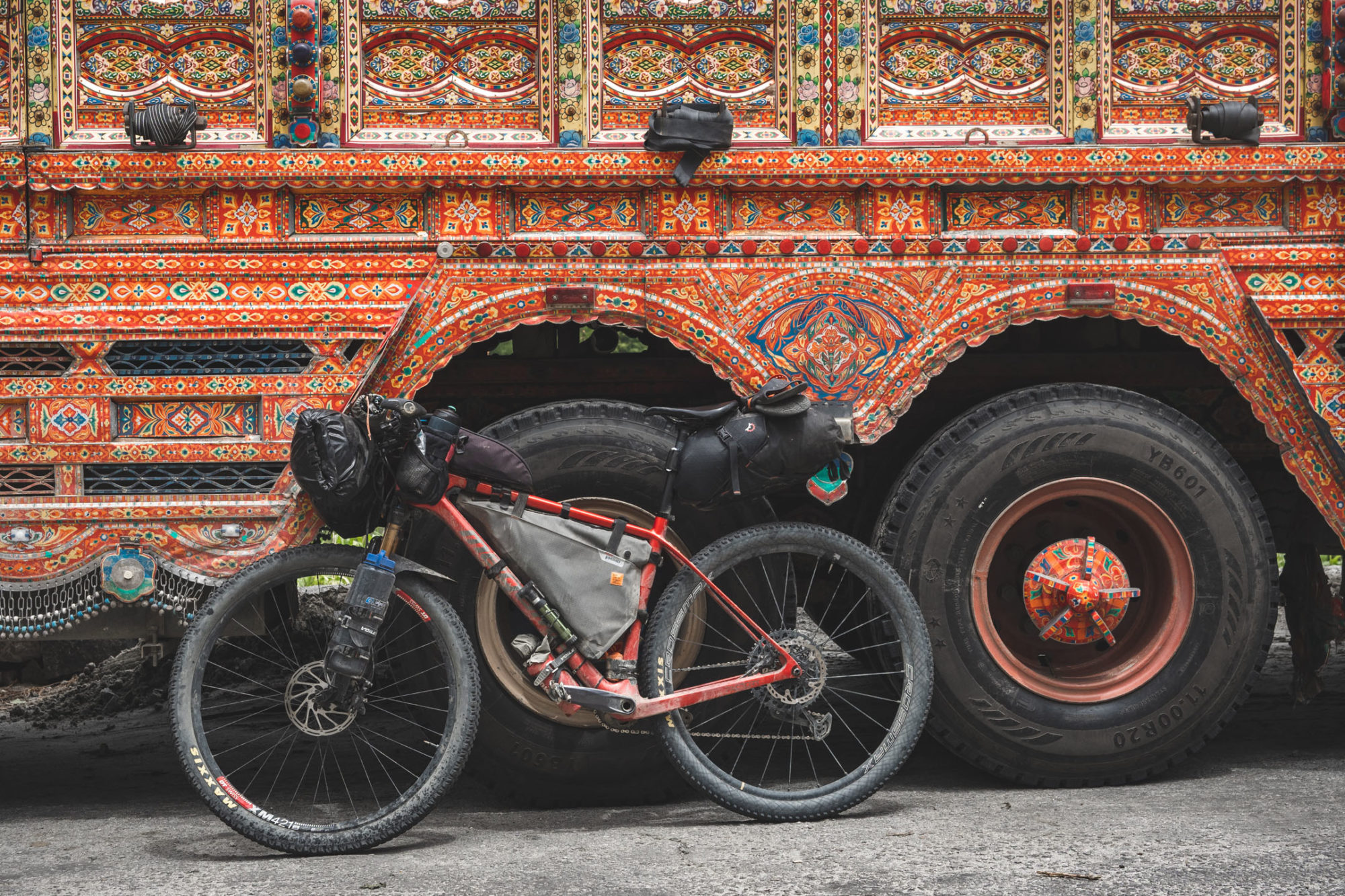
Another day, in the village of Mastuj, we’re invited to a party in the evening. It is in honor of a new house that a family has built. The home’s patio is packed to the brim. The men dance in a circle to the rhythm of the music. At the back, on some stairs, a few women hide. This time, I can sit with all the men since we are the guests of honor. Sometimes I feel like they don’t quite know where to place me.
While thinking about this and pushing myself to keep pedaling simultaneously, we reach the top of Shandur Pass, our first big climb. It wasn’t easy, but the descent toward Gilgit is spectacular. The trail is closed again, but we can cross the river without much trouble. The river zig-zags between green meadows, forming small islands and multiplying into streams and water inlets that look like a real labyrinth. Some locals take the opportunity to fish for trout, a highly prized catch in Pakistan.
We arrive in Gilgit and pedal for the first time along the legendary Karakoram Highway, the KKH. It is now almost completely paved. It’s very scenic because of the majesty of the mountains that surround it on both sides, the strength of the river that runs through it, and the vertical walls, though it has lost some magic of adventure it must have had in earlier years.
For us, the KKH is not a goal but a way to reach two places where we want to cycle: the Shimshal Valley and the Chapursan Valley. First, we enter the valley of Shimshal, and it’s nothing like I imagined it’d be. The road is closed again, but we can walk over the landslide with our bikes. It’s better not to look down and just move forward one step at a time.
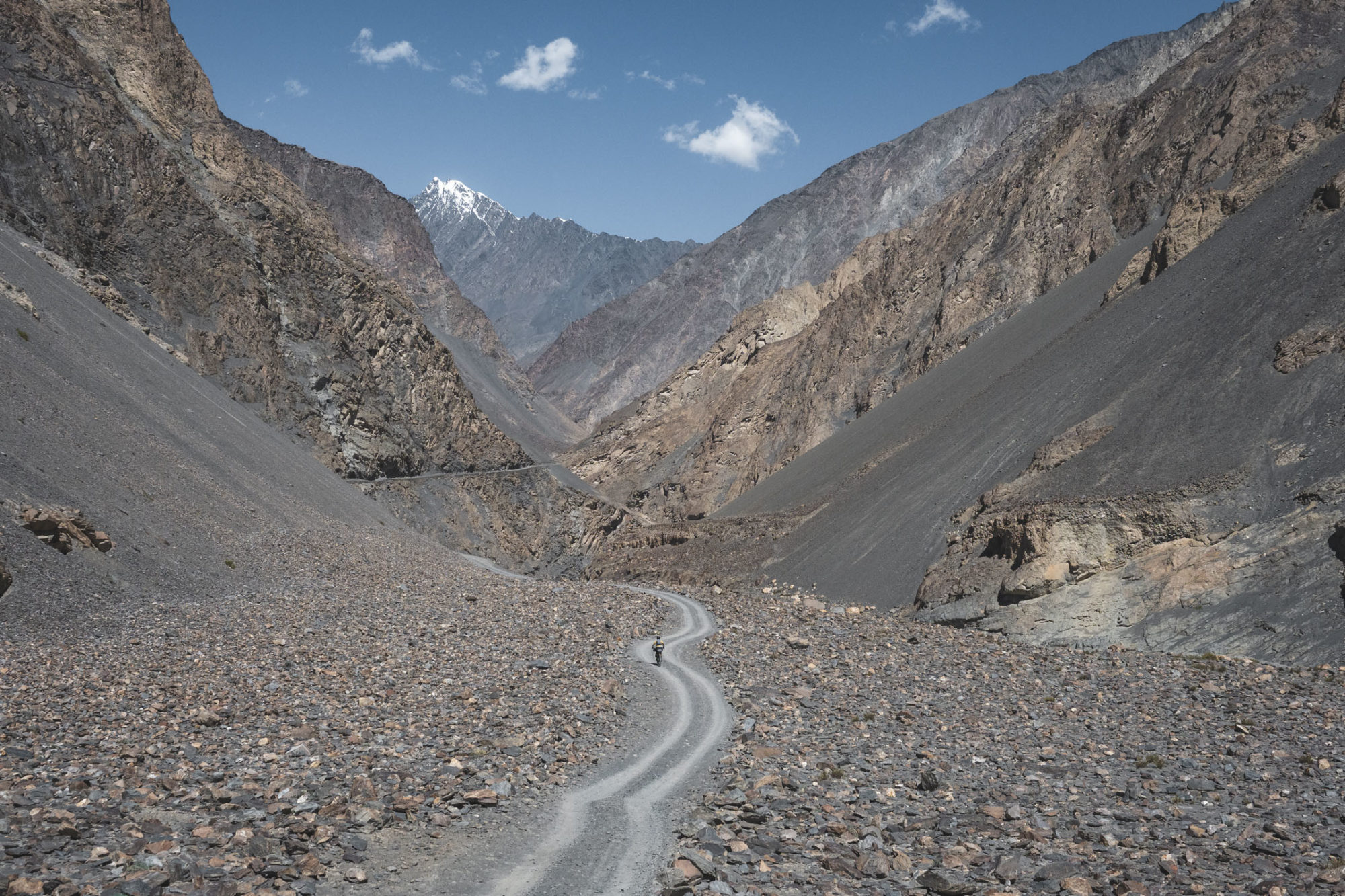
The day has been quite intense, and we decide to camp early. The heat is strong, and we have been pedaling for hours. We find a basic shelter that protects us from the heat. Its location is not exposed, unlike much of the road that runs through the valley. In some sensationalist publications, this road is listed as one of the most dangerous in the world. And, truth be told, the noise of the rocks coming off and falling from time to time is not very encouraging. Despite the constant exposure, the Shimshal Valley is one of the places in Pakistan where we feel the remoteness, where we push ourselves, and where the environment takes on more power. What a unique corner of the world!
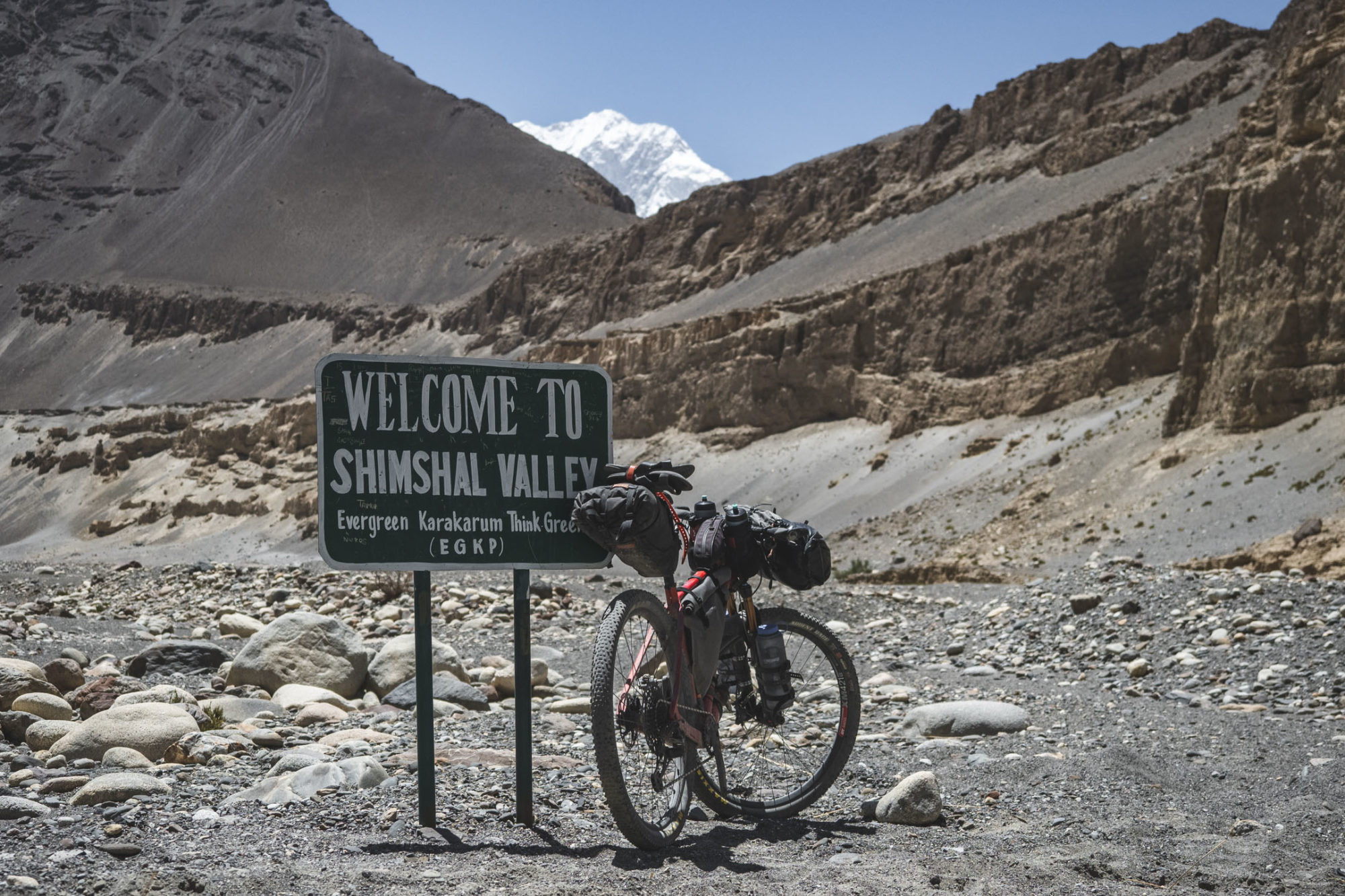
The next day, the reward is to reach the end of the valley and the village of Shimshal. Because the runway is closed, some products are in short supply. However, a family set up a hostel some time ago, and we stay there to recover some of the energy we left out on the slopes.
In all, the trip is very intense, but we live it with great passion and gratitude. Our motivation keeps growing, and without taking much time to rest, we head onward to the Chapursan Valley. We have an assignment: Tato and Marta, photographer friends of ours who have visited Pakistan a couple of times, have asked us if we could take fish oil to Alam Jan, a legend in the mountaineering world in Pakistan who is now suffering from osteoarthritis in one knee, which prevents him from all kinds of physical activity.
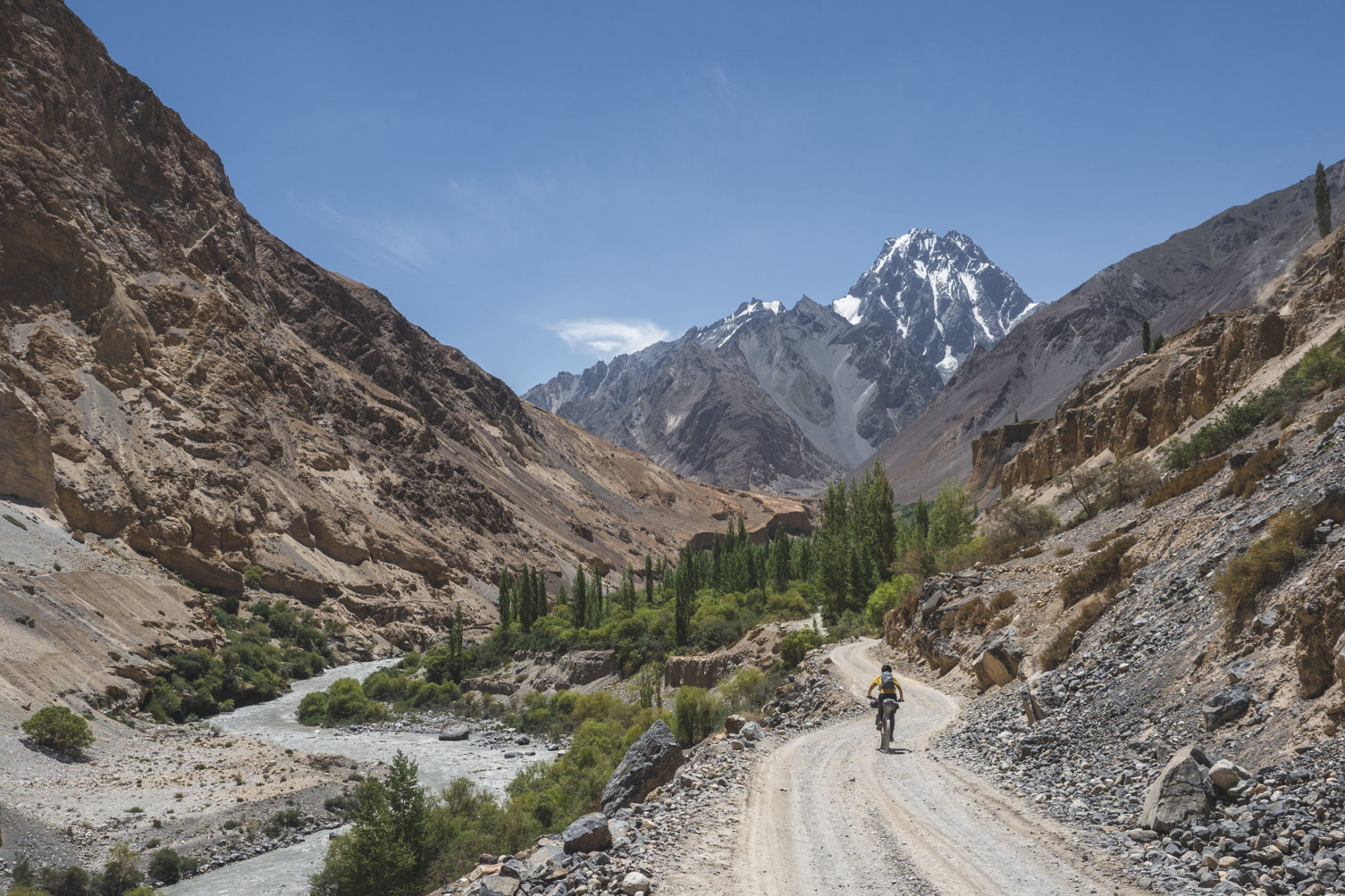
We ask in the first village if they know Alam Jan, and they tell us that we must continue pedaling to the village of Zoodkhun. The guy who gives us the directions to get there laughs when we explain to him what we are delivering. We don’t really understand why, but eventually, he explains that fish oil is banned here as it is believed to have a double function. In his words, he says it “helps to make more children.”
We arrive at the house of Alam Jan, and his family immediately opens the doors of their hostel. He is happy to see the gift we brought him, and we finish off our stay with a festival that takes place a few kilometers further up the valley at the Baba Ghundi temple. We stay an extra day to see what it’s is all about. Music, food, polo matches, and buzkashi, an aggressive and violent game without many rules that leaves no one indifferent, in which men on horseback compete to score goals with a decapitated goat as a ball. It’s considered the national sport of neighboring Afghanistan.
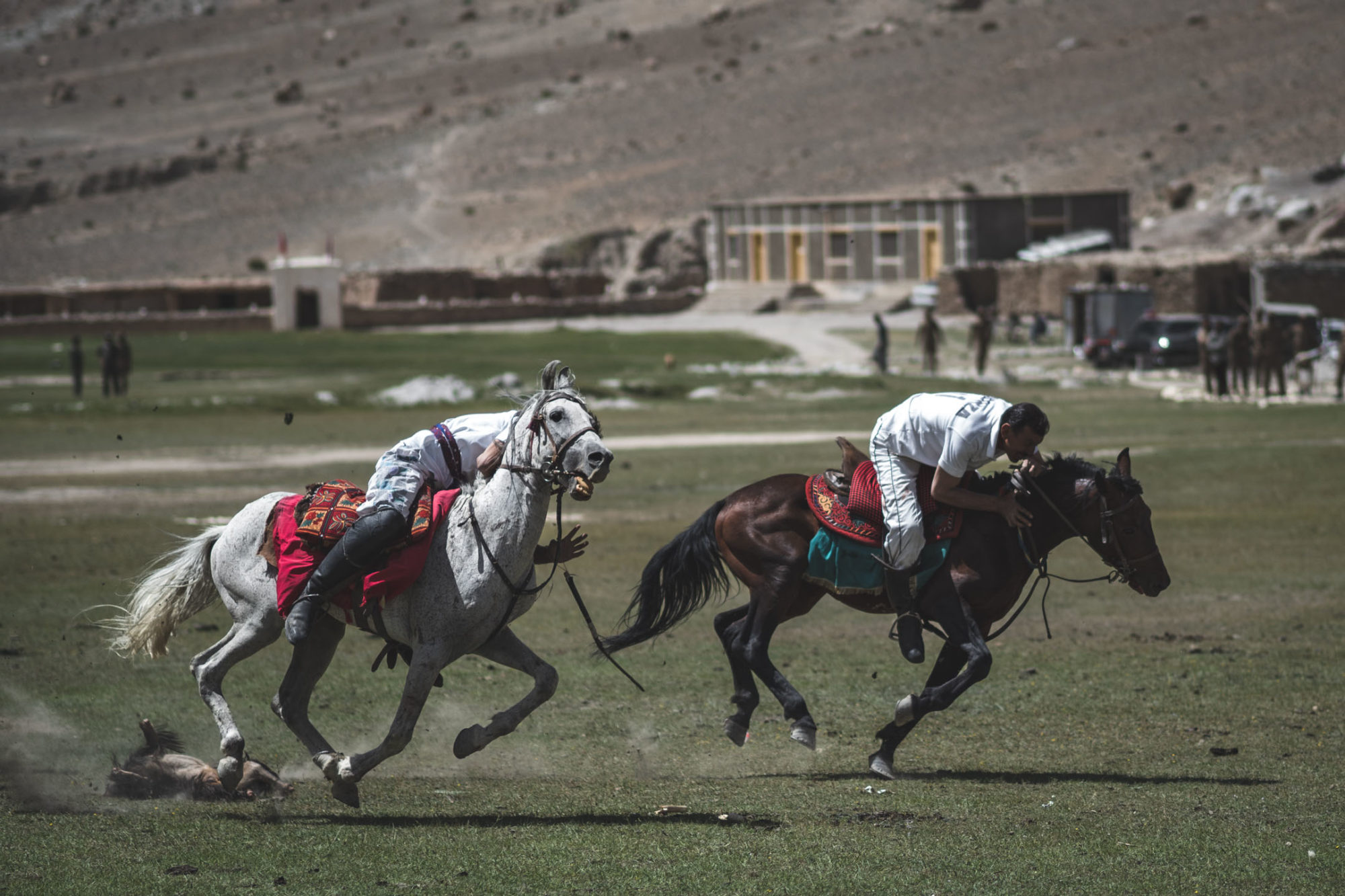
With the parcel delivered, our route now continues south to Deosai National Park, the second-highest plateau in the world after Tibet. I’m exhausted. The heat in Skardu is suffocating, and something I’ve eaten or drunk has taken its toll. I have to climb up almost 2,000 meters. Some truck ahead of us insists that he wants to take us, gesticulating that the climb is very steep. We continue pedaling.
The driver doesn’t seem to understand why—and neither do I this time! After a few hours of sweating, stopping several times, of not being able to eat anything, we arrive at the top, at the pass, more than 4,000 meters high, in the fresh air, amid the wonderful Deosai landscape. Despite not feeling well, I understand that my stubbornness has paid off. I sleep for hours and hours. I hope to recover soon.
The descent down the other side is also very scenic. The long descent is a gift to my depleted state. I haven’t eaten much for three days, and my strength is starting to fail. We decide to spend the night at a hostel we find a few kilometers before the fork in the road leading to Rupal.
Looks like I’m starting to get hungry. That’s a good sign. And I don’t want to sleep as much anymore. While we’re enjoying some fresh air outside that evening, Omer and Amina from Islamabad ask us the usual questions: Where are you from? Where are you going? Where did you come from? We immediately connect, share dinner with them and their four children, and we’re excited to see each other again when we return to the capital.
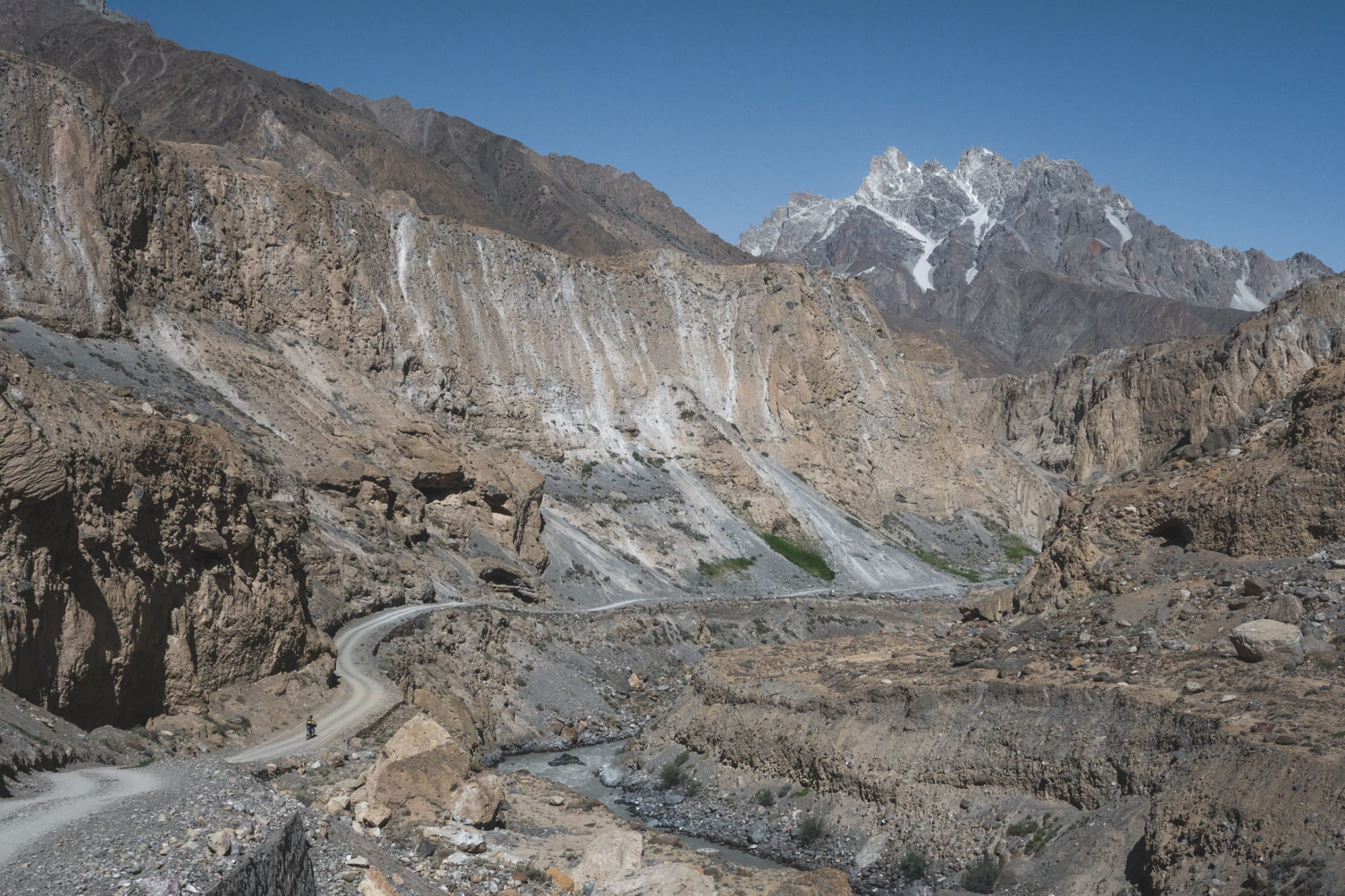
The next day, with renewed energy, we go into the valley of Tarishing and Rupal. Everyone was telling us that in trying to see the imposing Nanga Parbat, the killer mountain, you have to go to Fairy Meadows, which is where all the visitors go. However, we let ourselves be guided by our instincts and make our way, pedaling toward the village that lives under the glaciers, Tarishing. There, we stop for breakfast at Aktar’s house, a friend of some friends. His son is waiting for us with food on the table. The rain surprises us, but stubborn and with high morale, we continue to pedal along the stony and straight track to Rupal.
With a little more effort, we arrive at the Said camp, where we pitch our tent. Meanwhile, a window of good weather appears to be arriving. We hurry to get closer to the base camp, walking now and following a goat trail. The last few steps and… I’m stunned. Surprised. Speechless. Grateful. I feel overhwelmed by the beauty, something that hasn’t happened to me for a long time.
In front of me, I can see 8,126 meters of mountain. I just watch, and time stands still. I see how the white is changing its tone, how my thoughts are adapting to the mountain, how my mood is transforming, how the immensity of the environment shrinks me and makes me realize how insubstantial and ephemeral we are. At this moment, once again, I feel that this is where I want to be, right here and now.
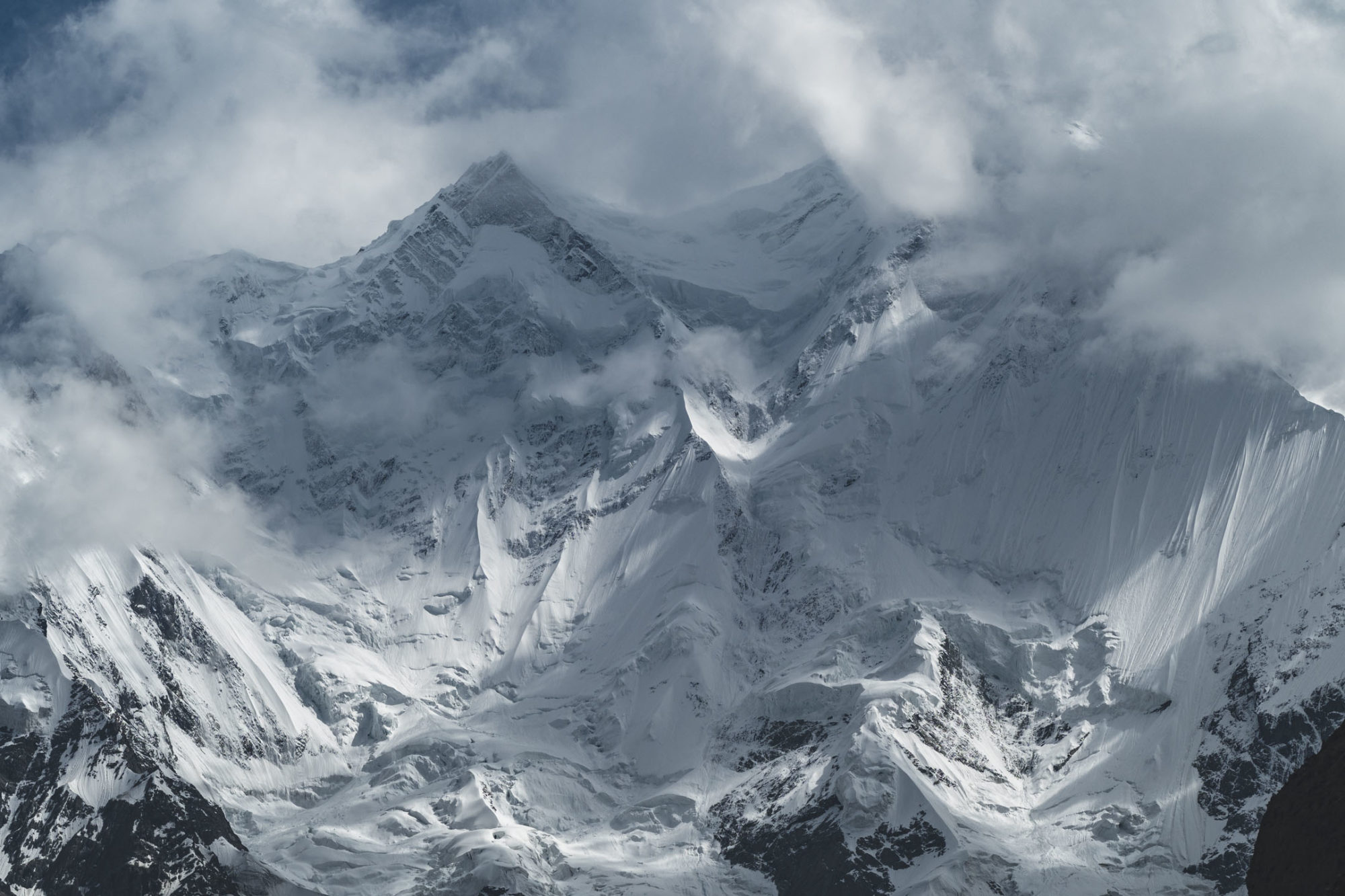
It is difficult to leave, but after a long time observing the mountain’s majesty, we decide to head back down. We share dinner with Said. He doesn’t speak much English, but he tells us that it’s the first year he’s decided to come up here and start this little business after being widowed. His eyes shine with goodness. We sit in a circle around a small campfire. The milky way and silence are pure gold at these heights.
The return to the valley, the heat, and the KKH are a shock, but we want to reach Chilas. We had previously been informed that the ascent to Babusar Pass was prohibited by bicycle for safety reasons, and this has not changed. So, our bikes are loaded into a car and unloaded at 4,173 meters and in 8°C (46°F) temperatures. We have to go through another police checkpoint, where the usual routine takes place. Friendly policemen invite us for a typical chai (tea with milk). Warmed up with all the clothes we have, we begin to descend. Our final point is at Balakot village. We agree it isn’t worth cycling in all the traffic and the heat, so at Balakot, we decide to continue to Islamabad by public transport.
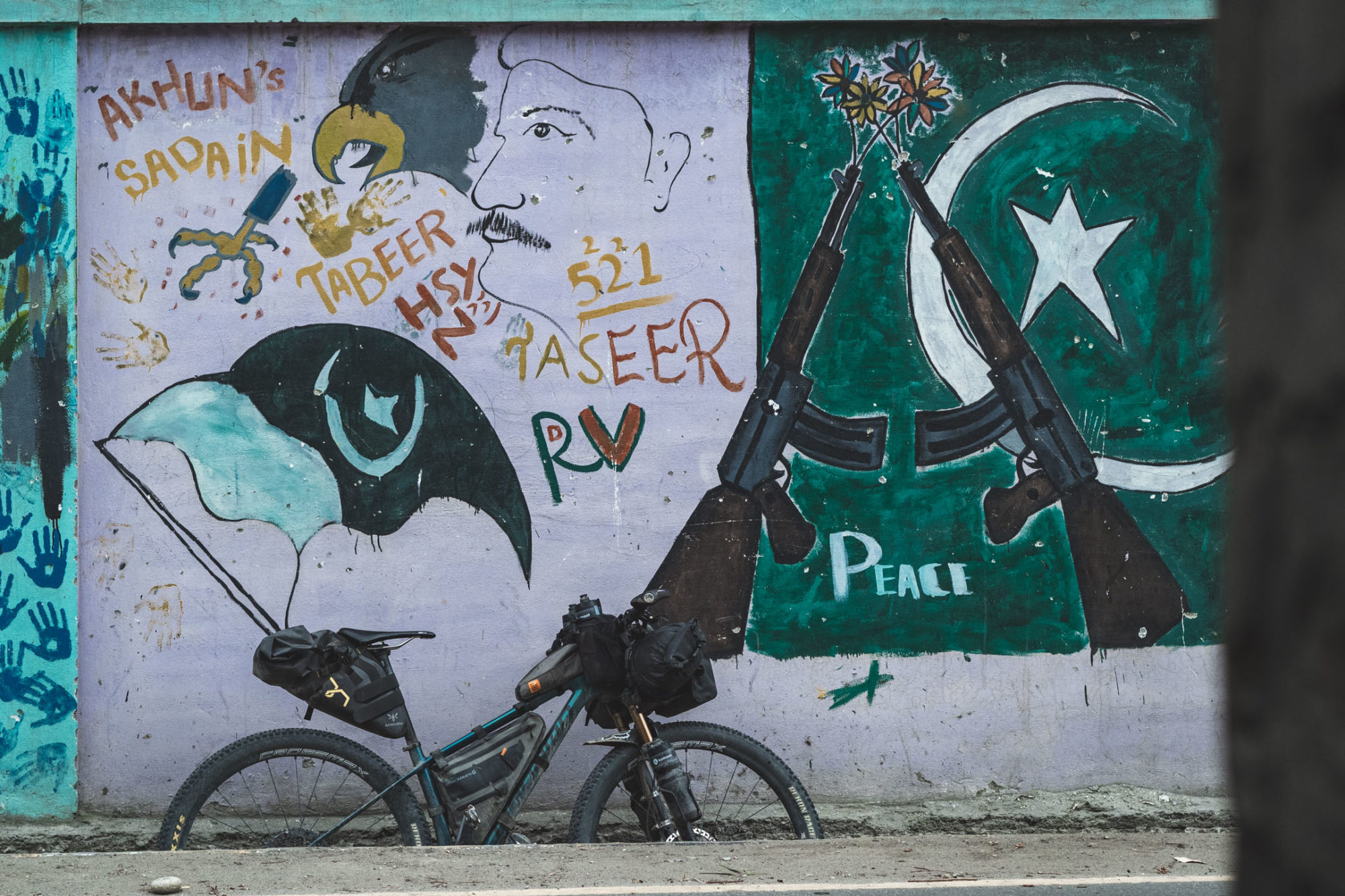
The arrival in Islamabad, specifically in Rawalpindi, where we booked the hostel, transports us to the first day we set foot in Pakistan: colorful tricycles, people on foot, men on motorcycles, all zig-zagging and honking. A guy on a red motorcycle sells ice cream. A man kills and cuts up chickens on the street. Another one sears lambs’ hooves and then submerges them in cold water. It seems we’ve become used to the mixture of smells—of fumes from cars and motorbikes, of meat, bread, and garbage.
Shortly after arriving at the hotel, we receive a call from Omer. Tomorrow at 10 a.m., a driver will come to pick us up, we’ll take all our luggage, bicycles included, and he’ll drive us to where he and his family live. We continue with the Jhoom motto and flow for the remaining two days.
We go from the most extreme poverty seen in the north of the country to the luxury of one of the richest neighborhoods in Islamabad. They host us in a mansion with a swimming pool and luxury cars around. They treat us like special guests and prepare a party in our honor, where we drink the first beers since we arrived. They make us feel like members of their family who they haven’t seen for a long time. We experience unlimited hospitality again.
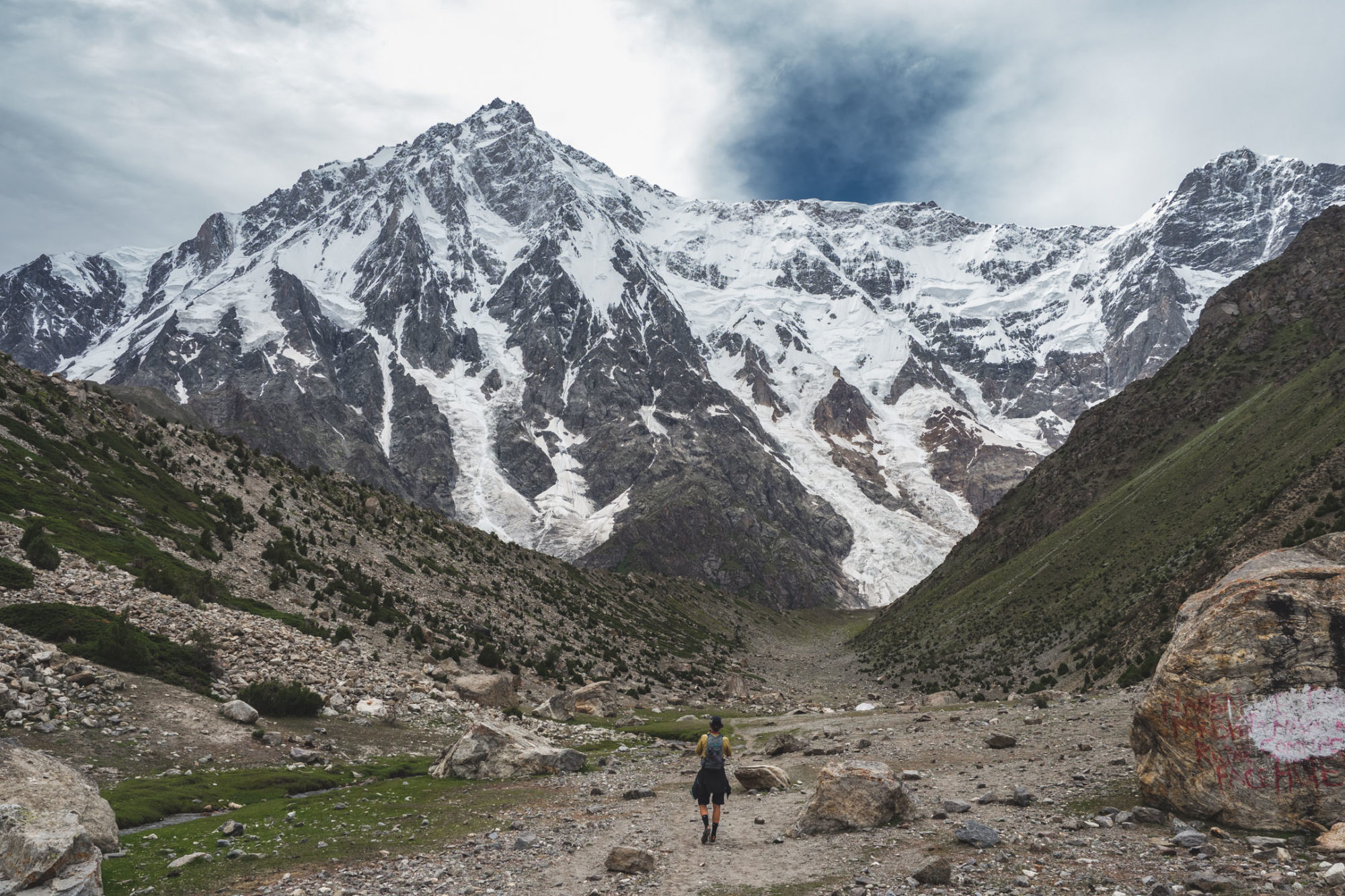
We say goodbye to a country that has made us live at extremes: poverty and wealth, hot and cold, tranquility and chaos, comfort and risk. Pakistan is an intense country that we will absolutely never forget.
Related Content
Make sure to dig into these related articles for more info...
Please keep the conversation civil, constructive, and inclusive, or your comment will be removed.




